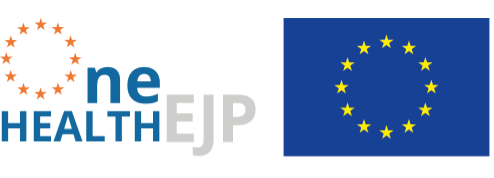Thank you to everyone who took part in the Final School 2022.
See the positive feedback below and read the blog post on this event here.
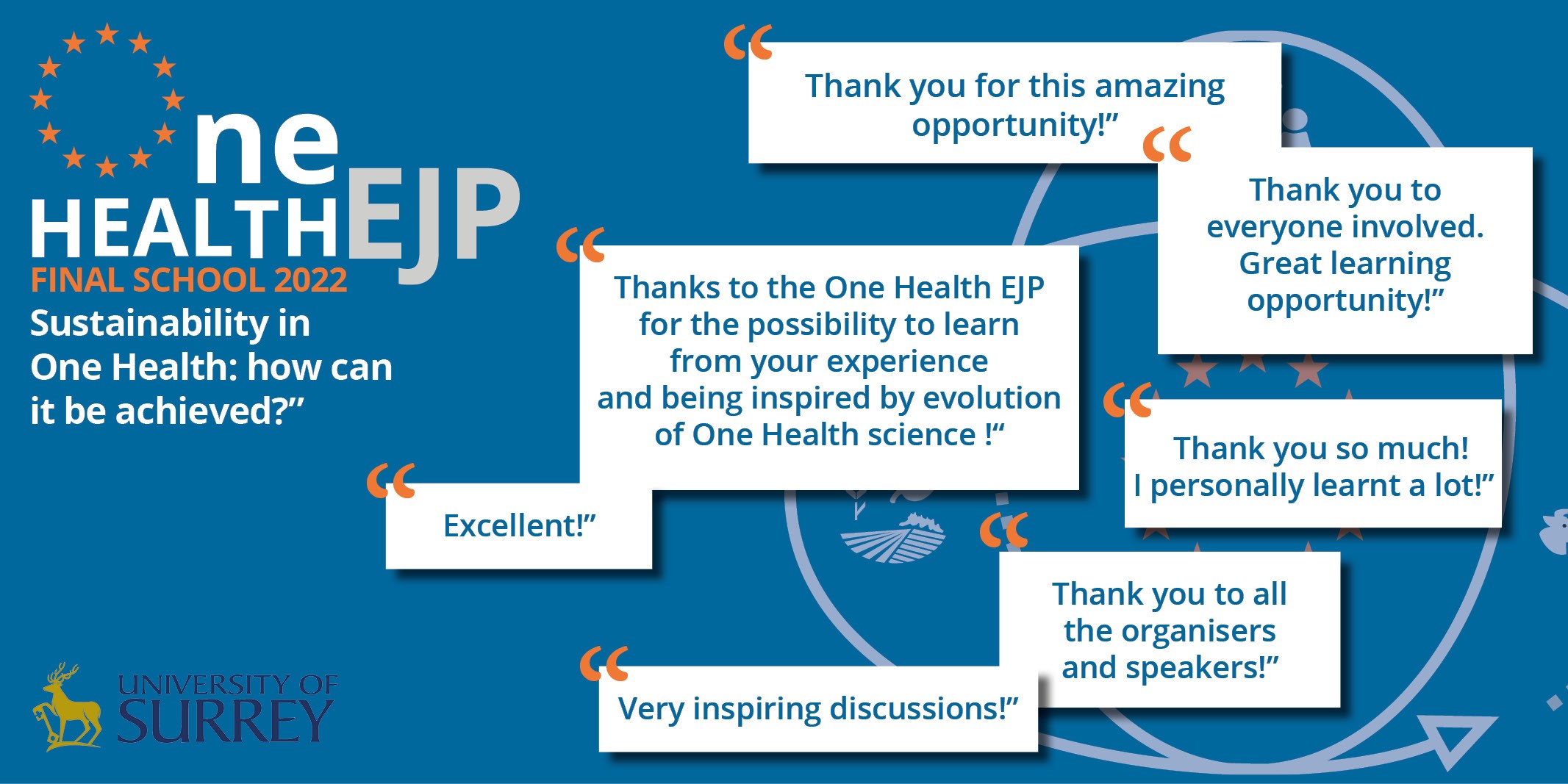
When?
5th – 7th December 2022
Where?
Online – hosted by the University of Surrey
What was the aim of the One Health EJP Final School 2022?
In 2021, the One Health High Level Expert Panel redefined One Health: “One Health is an integrated, unifying approach that aims to sustainably balance and optimise the health of people, animals and ecosystems. It recognises the health of humans, domestic and wild animals, plants, and the wider environment (including ecosystems) are closely linked and inter-dependent.” Sustainability is at the core of One Health approach. Sustainable solutions must be adopted that recognise the importance of animal welfare, biodiversity and ecosystem integrity for overall health and well-being, now and for future generations.
In response to this updated definition, the One Health EJP Final School focused on the theme of “Sustainability in One Health: how can it be achieved?”
Over the last five years, the One Health EJP has facilitated transdisciplinary and cross-sector research collaborations to better prevent, predict, detect and respond to global health threats of the 21st Century. Our successful research outputs and education events have demonstrated the importance of communication and coordination between the different partners to advance One Health. This Final School communicated how the outcomes from our innovative and visionary European programme can benefit the future of One Health. The legacy of the OHEJP will continue beyond 2023 through the sustainability plan. Our One Health future will be driven by students and early career researchers, who were invited to this event.
The programme included:
- One Health topics to which sustainability is being applied. In relation to foodborne zoonotic pathogens and antimicrobial resistance being transmitted between humans and animals, or through the environment, and key emerging health threats.
- How policies can shape the future of One Health.
- The importance of education and training activities for the future generations of One Health professionals.
- The relevance of effective communication and open research for multisectoral collaborations.
The Final School was delivered via presentations and interactive question and answer sessions to encourage debate across disciplines.
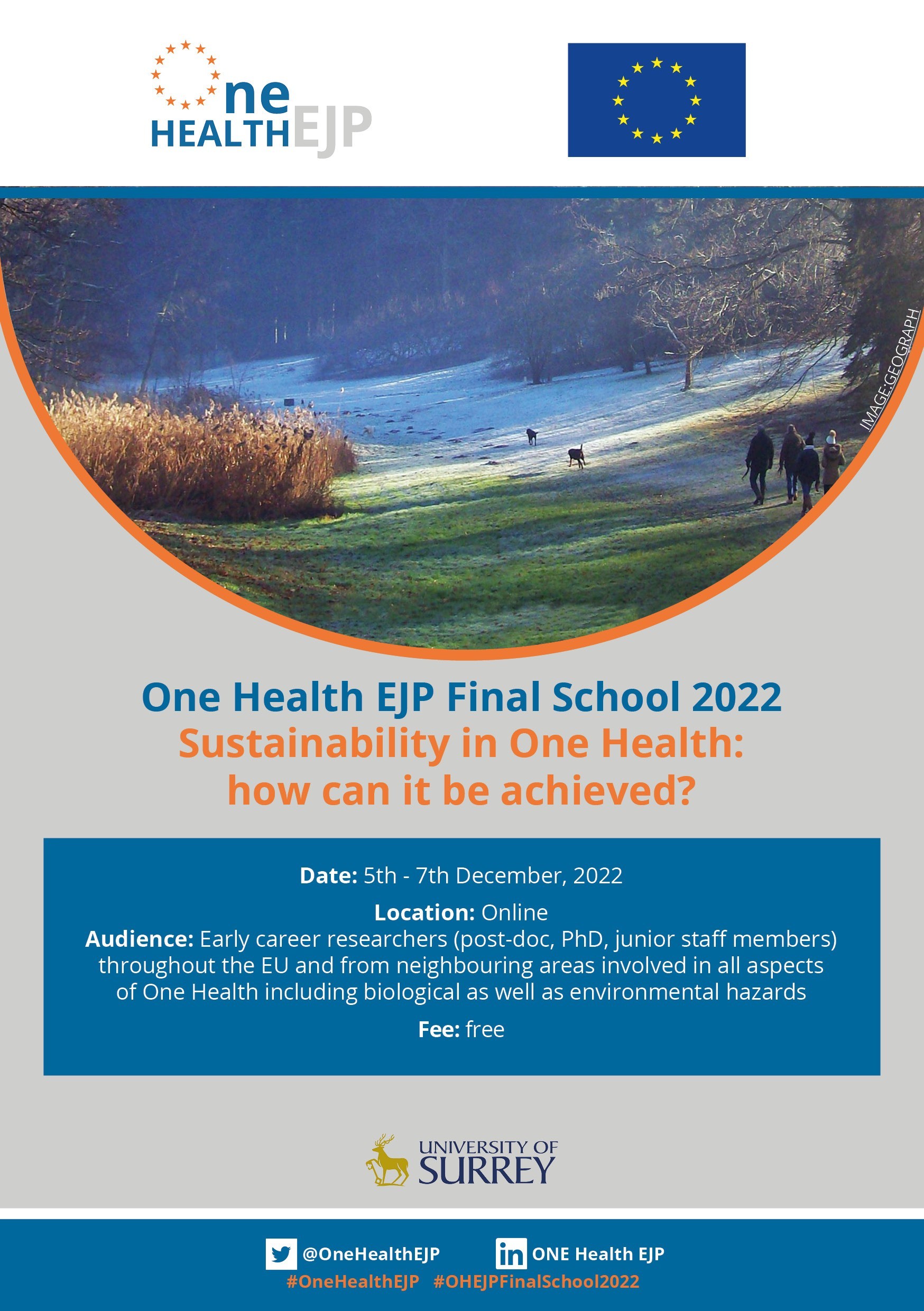
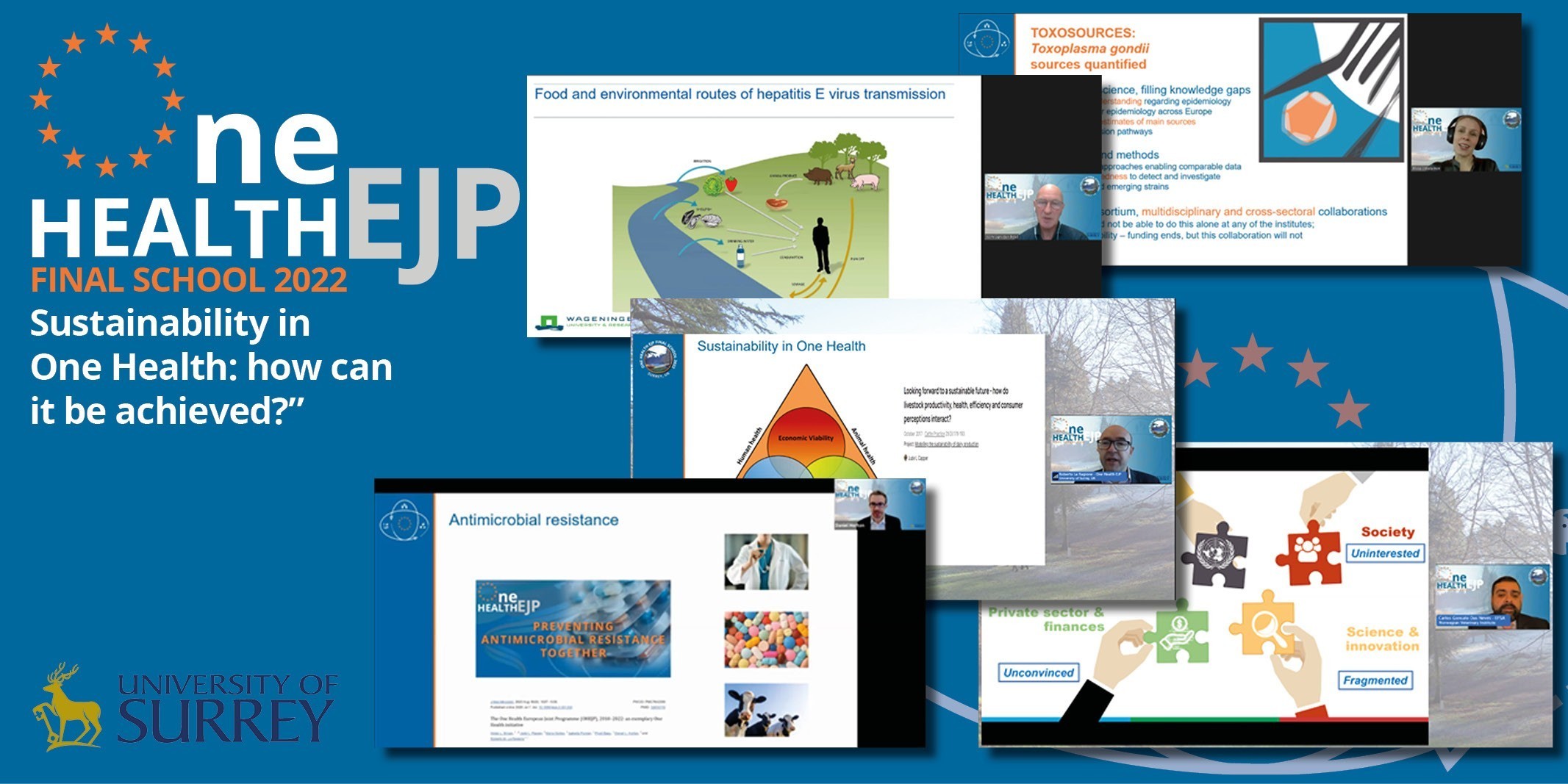
Our speakers
Prof Roberto La Ragione
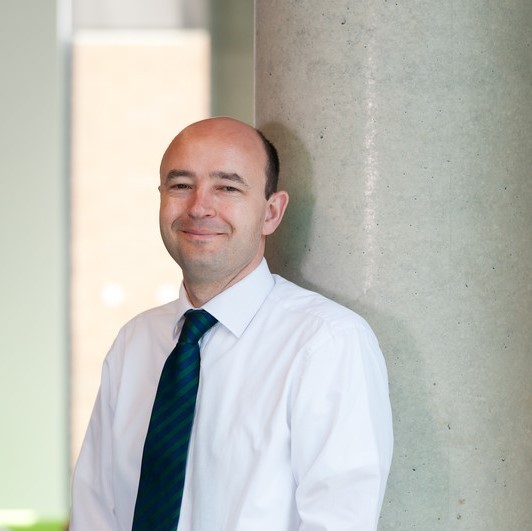
Roberto La Ragione is a Professor of Veterinary Microbiology and Pathology at the School of Veterinary Medicine and the Head of the School of Biosciences and Medicine at the University of Surrey.
Roberto graduated in 1995 and then went on to study for a post graduate degree in veterinary microbiology at the RVC. In 1996 he moved to the government Veterinary Laboratories Agency to undertake a PhD on the pathogenesis of E. coli in poultry. In 2005 Roberto was appointed head of pathogenesis and control at the APHA and in 2010 he was appointed Professor of Veterinary Microbiology and Pathology at the University of Surrey.
Roberto gained the FRCPath in 2010 and in 2012 was appointed the Associate Dean for Veterinary Strategy in the School of Veterinary Medicine. In 2014 he was appointed Head of the Department of Pathology and Infectious Diseases and 2019 Deputy Head of School. In 2021 he was appointed Head of the School of Biosciences and Medicine. Roberto is the Chair of the Royal College of Pathologists Veterinary Pathology Specialty Advisory Committee, Chair of the Humanimal Trust, a Trustee of the Houghton Trust, a member of the APHA Science Advisory Board, and the past president of the Med-Vet-Net Association and the Veterinary Research Club. Roberto is an Associate member of the European College of Veterinary Microbiology (AECVM). In 2020 he was awarded Honorary Associateship of the Royal College of Veterinary Surgeons (HonAssocRCVS).
Roberto’s current research interests focus on AMR and understanding the pathogenesis of zoonotic bacterial pathogens. Roberto has a particular interest in the development of control and intervention strategies, including rapid diagnostics, vaccines, and probiotics for the control of pathogens such as Salmonella, Brachyspira and E. coli in food producing animals. Roberto has published over 190 peer reviewed papers in the area of microbiology.
Dr Aurore Poirier
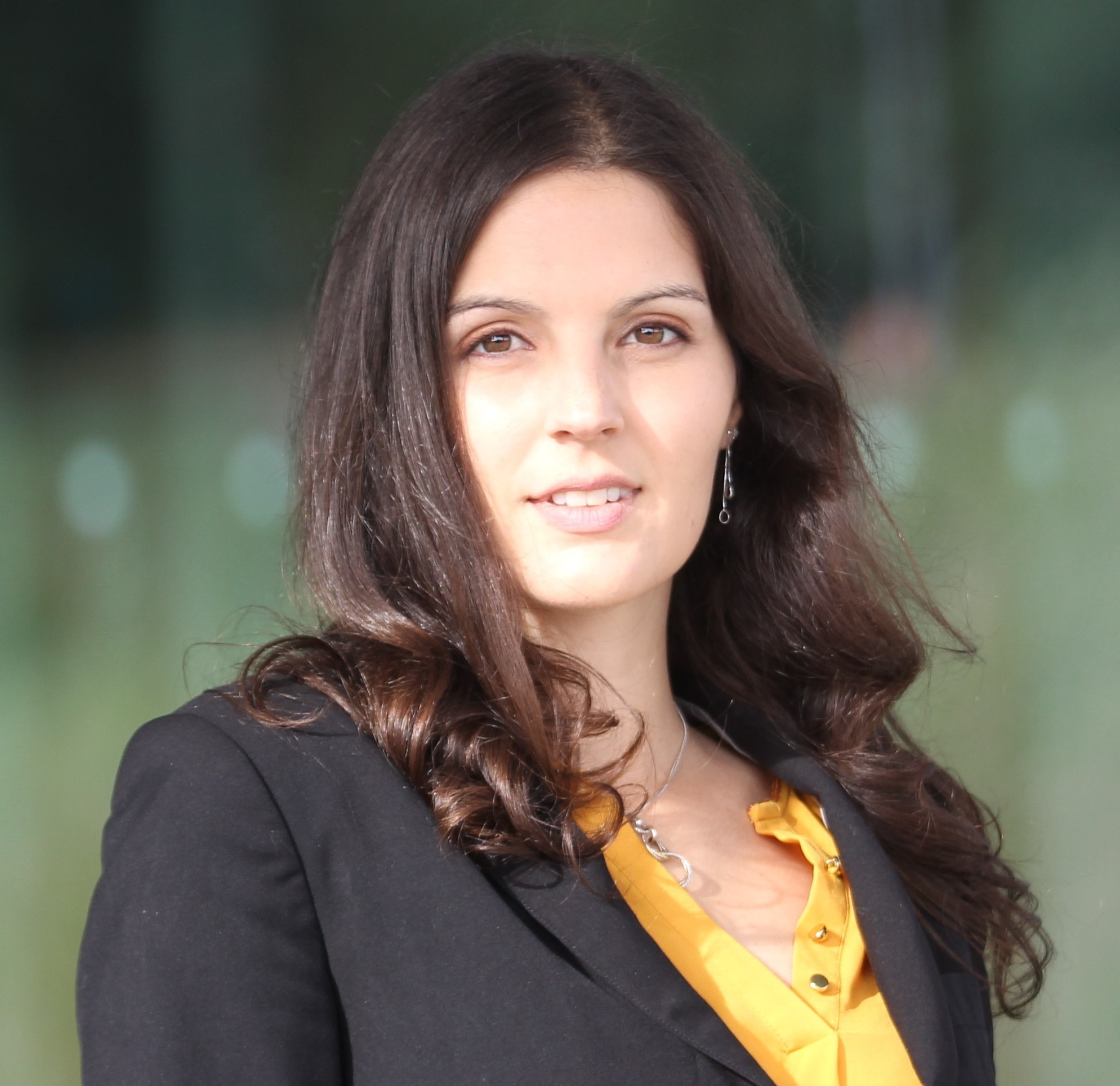
Aurore Poirier (MSc, PhD) was the lead organiser of the Final School. She is a Research Fellow in Molecular Microbiology and a Science Communication officer, for the One Health EJP, at the University of Surrey. Aurore was awarded a PhD in Microbiology and Parasitology in 2015, after completing an MSc in Biology of Plants and Micro-organisms in 2012 both at the University of Montpellier, France. Her first pot-doctoral experience was in the Institute for Liver and Digestive Health at University College London (UCL), where she worked as a Research Associate on the development of a bio-medical device to treat sepsis. She joined the University of Surrey in 2018, in Professor La Ragione’s research group and has been working since then on the development of rapid molecular diagnostics for infectious diseases. She successively worked on a BBSRC funded project in collaboration with Brunel University London, Lancaster University and 3 Universities of The Philippines to develop a rapid diagnostics platform for the detection of bacterial and viral pathogens in broiler chickens in the Philippines; and on an Innovate UK project, for the development of a New Smart Diagnostic for Infection in collaboration with Molecular Warehouse and Shanghai University. She also recently worked in collaboration with a start-up company, Vidiia, on the development of an AI-assisted smart diagnostics platform for the detection of COVID-19.
Dr Hein Imberechts
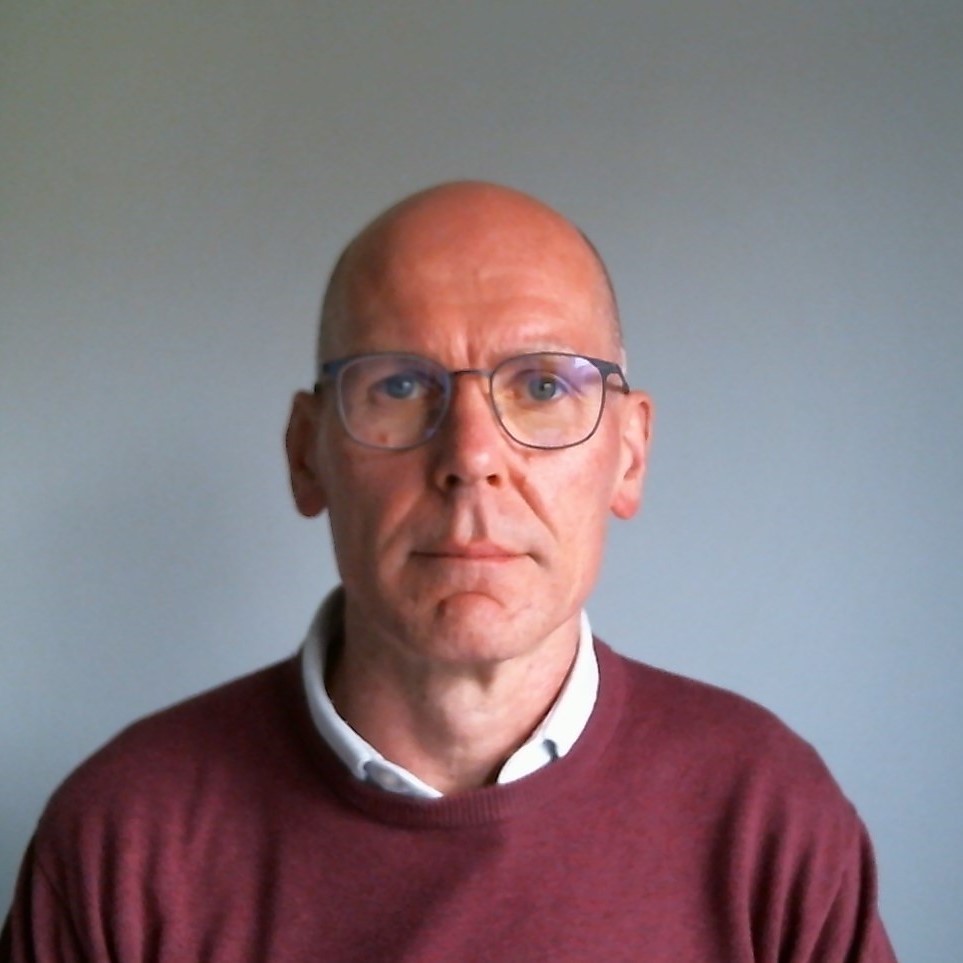
Hein Imberechts holds a degree of Veterinary Medicine (1985, University of Ghent, Belgium) and of Molecular Biology (1988, Free University of Brussels, VUB); he obtained a PhD in 1992.
From July 2001 until January 2015 he was the Head of Department of bacteriology at CODA-CERVA, the Belgian reference laboratory for infectious animal diseases. Since February 2015 he is Scientific Support Advisor at Sciensano, the Belgian Institute for Health.
He was member of the scientific committee of the Federal Agency for the Safety of the Food Chain in Brussels between 2001 and 2016, and president of Veterinary Working Group of the Belgian Antibiotic Policy Coordination Committee between January 2015 and December 2017. Since December 2019, he is member of the Scientific Council of ANSES in Paris.
Since 2012 he represents the institute in the MedVetNet Association and since October 2018 he is Vice-President of this association. As from October 2019, he is elected chair of the Animal Health and Welfare Collaborative Working Group of SCAR. In 2016, he created with the veterinary faculties of UGent and ULiège STAR-IDAZ.be, a regional consortium of the global animal health network.
Since January 2018 he is scientific coordinator of the One Health European Joint Programme within Horizon2020 together with ANSES (Paris, FR). This project is a network of 44 animal and public health partners in 22 member states and manages a budget of €90M (50% co-fund).
Prof Daniel Horton

Daniel Horton is a veterinarian with over 15 years’ experience in research on zoonotic viral diseases. Dan is currently a Professor in Veterinary Virology and an Associate Dean for Research and Innovation at the Faculty of Health and Medical Sciences, University of Surrey. Prior to joining the University of Surrey in 2014 he worked at the Wildlife Zoonoses Laboratory at the UK Government’s Animal and Plant Health Agency where he led research and surveillance projects on rabies and other zoonoses, was an advisor to UK Government and the OIE and led multiple overseas assistance projects on rabies including in Africa and the Middle East. He has over 65 peer reviewed papers in the field, is an Editor at PLoS NTD, currently supervises six PhD students and teaches at undergraduate and postgraduate level. He is Deputy leader of the OH EJP project COVRIN and a collaborator in TELE-VIR and the OH EJP Training and Educational Activities.
Prof Carlos Gonçalo das Neves
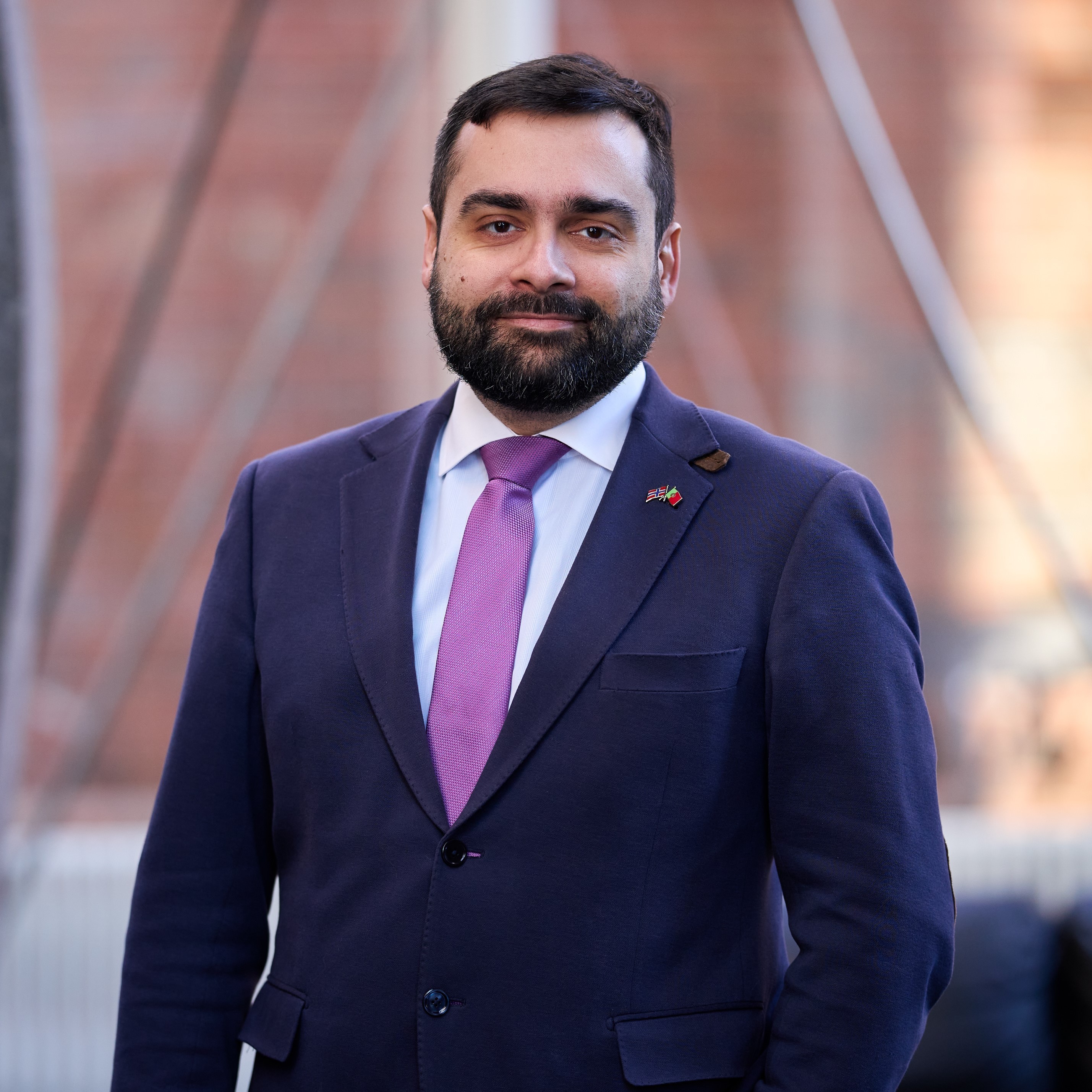
Carlos Gonçalo das Neves, a Portuguese and Norwegian citizen, graduated in Veterinary Medicine, from the Technical University of Lisbon in 2004, and obtained his PhD in veterinary science in 2009 from the Norwegian School of Veterinary Sciences.
He holds also a Postgraduate Certificate in Public Health from the London School of Hygiene and Tropical Medicine, and a Certificate in Public Policy from the London School of Economics.
He is the Chief Scientist of the European Food Safety Authority, having served previously between 2019 and 2022 as the Director of Research and Internationalization of the Norwegian Veterinary Institute (NVI). He holds a joint position as Full Professor at the Faculty of Medical Sciences at the University of Tromsø.
Prof. das Neves has worked in the field of wildlife diseases, and has experience on topics related to ONE HEALTH and emerging threats and food systems. He has a strong background in science to policy translation, advocacy and societal awareness.
In 2013 he obtained the diploma of specialist of the European College of Zoological Medicine, and is currently the chair of the Wildlife Population Health Speciality. Between 2014-2018 we served also as an expert in animal welfare and health for the Norwegian Scientific Committee for Food and the Environment. He is a Commissioner at the Lancet ONE HEALTH Commission, and a member of the Global 1 Health Network and of the One Sustainable Health Forum, as well as a lead author on the ongoing IPBES Nexus assessment on the interlinkages among biodiversity, water, food and health.
He is a Member of the IUCN Wildlife Health Specialist Group, and has served between 2019 and 2021 as the President of the Wildlife Disease Association. He has also served as Honorary Consul of Portugal in Norway between 2010 and 2017.
Prof Dolores Gavier-Widén
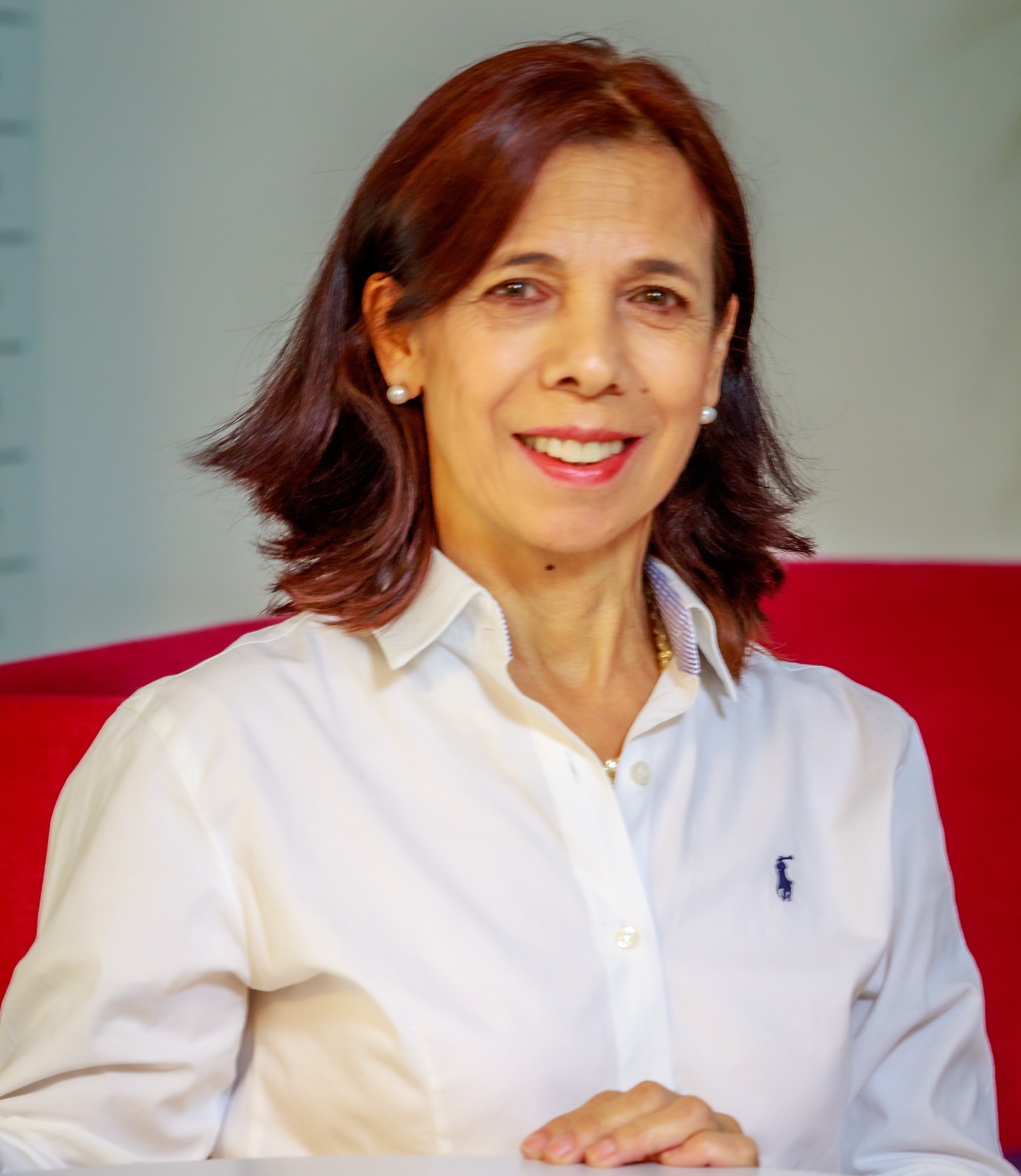
Prof. Dolores Gavier-Widén is a veterinary pathologist at the National Veterinary Institute (SVA) of Sweden and adjunct professor at the Swedish University of Agricultural Sciences (SLU). She is specialised on infectious diseases of wildlife with special focus on emerging infections. She has conducted research and wildlife health surveillance for more than 20 years. She has published more than 100 articles in international peer-reviewed journals and several books/book chapters, including “Infectious diseases of wild mammal and birds in Europe” and has delivered numerous invited presentations internationally. She has provided expert advice to European and international organisations, including, OIE, FAO and EFSA. Dr Gavier-Widén is the Regional Coordinator for Europe for Wildlife Health Specialist Group (WHSG) of SSC, International Union for Conservation of Nature (IUCN) (https://www.iucn-whsg.org/). She is past president of the Wildlife Disease Association https://www.wildlifedisease.org/wda/. She has received several awards and has a passion for wildlife health.
Prof Lorenzo Fioramonti
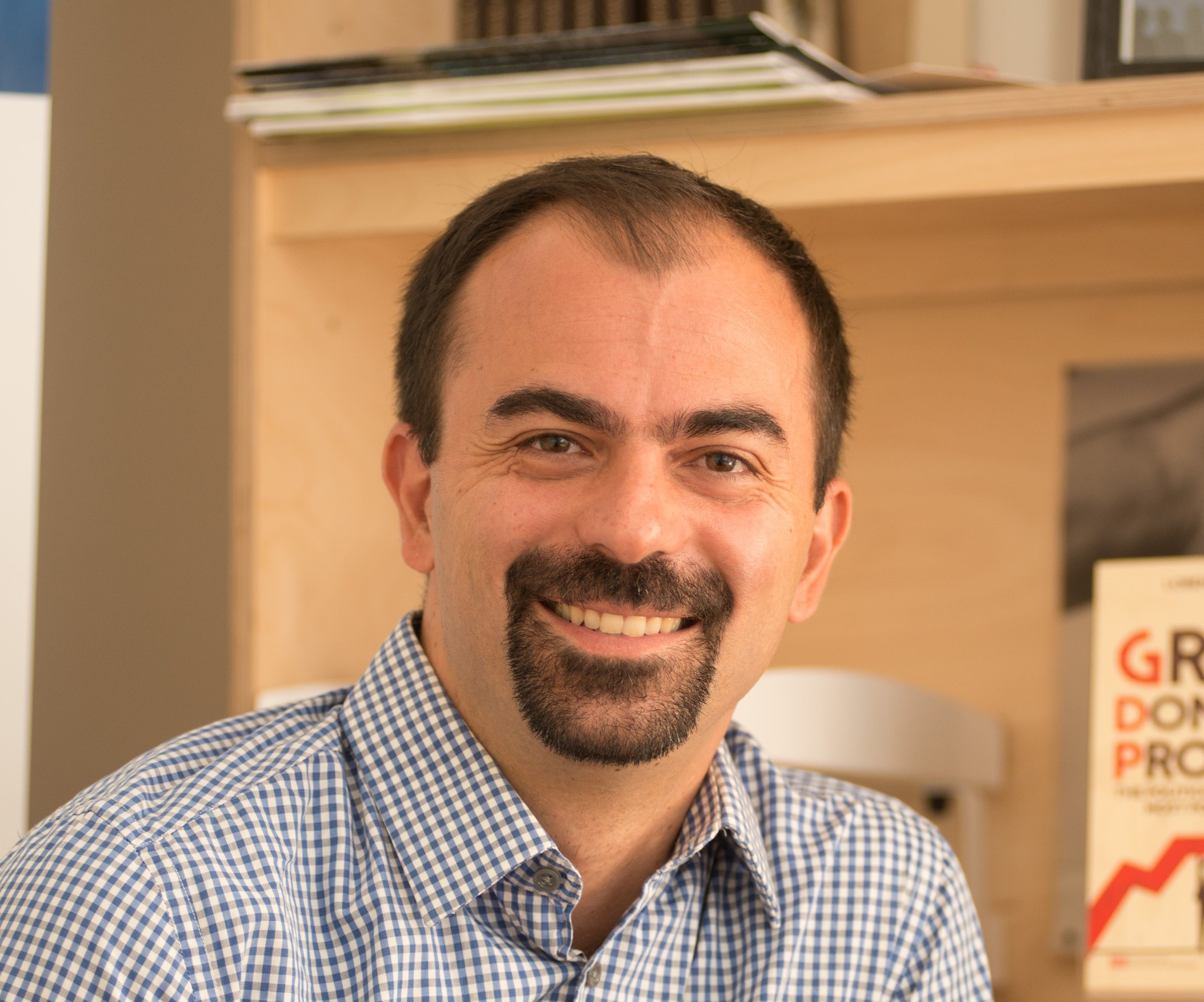
Lorenzo Fioramonti (@lofioramonti) is the Founding Director of the Institute for Sustainability at the University of Surrey (UK) and a former member of Parliament and Minister of Education, University and Research in Italy. He is passionate about sustainability education and research and his books include: Wellbeing Economy: Success in a World Without Growth (MacMillan 2017) and The World After GDP: Economics, Politics and International Relations in the Post-Growth Era (Polity 2017), which have been featured – among others – by Bloomberg and the Financial Times. His opinion pieces have been published by The New York Times, Financial Times, The Guardian, Foreign Policy, Harvard Business Review, TruthOut, Die Presse, The Conversation, Das Parlament, Der Freitag, The Mail&Guardian, Business Day and www.opendemocracy.net. He is a sought-after public speaker on issues regarding sustainable wellbeing, governance innovation and purpose-driven business. His personal website is www.lorenzofioramonti.org
Prof Robyn Alders
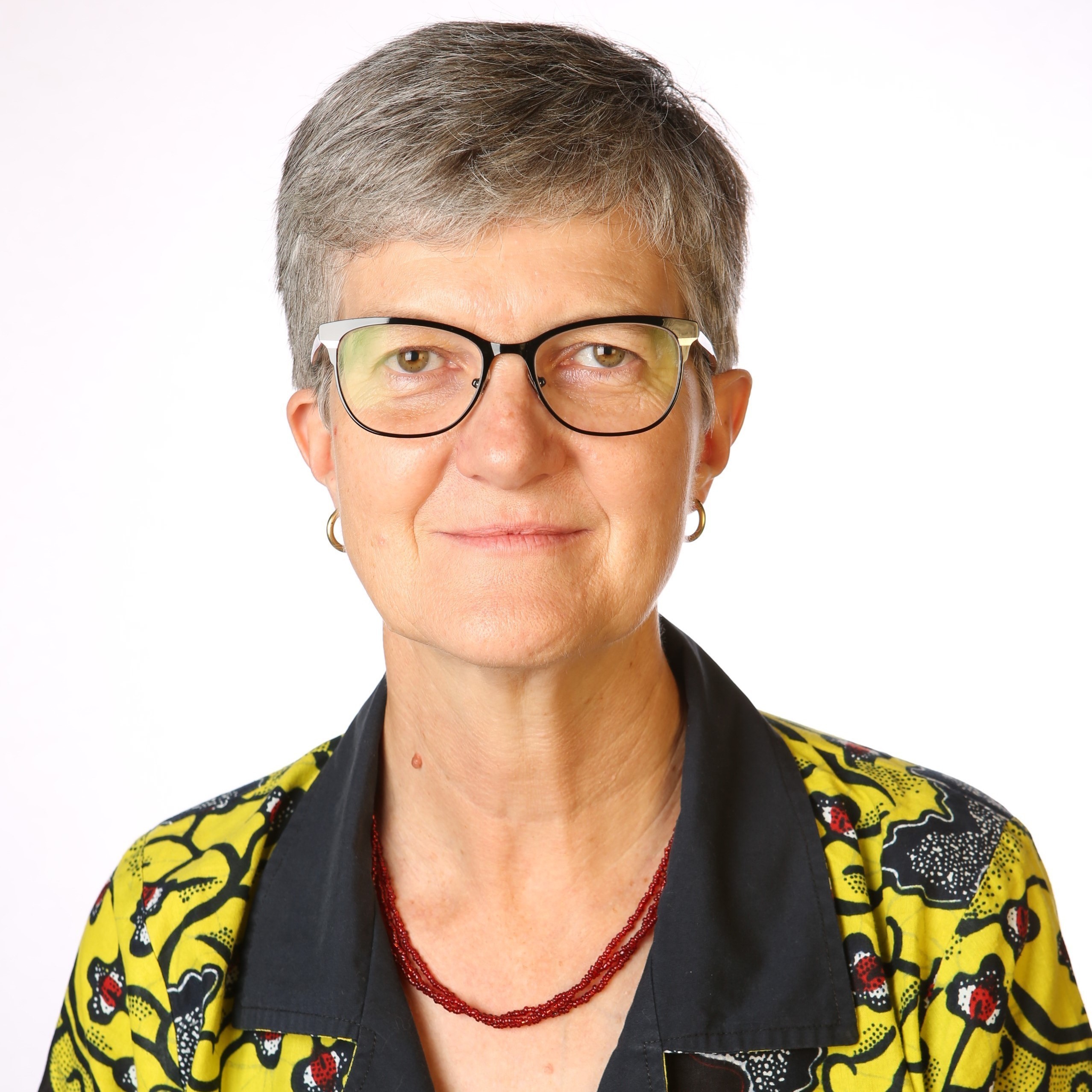
Robyn Alders AO is an Honorary Professor with the Development Policy Centre and the Institute for Climate, Energy and Disaster Solutions within the Australian National University, a Senior Consulting Fellow with the Chatham House Global Health Programme, an Honorary Professor with the Department of Pathobiology and Population Sciences at the Royal Veterinary College within the University of London and an Adjunct Professor in the Veterinary Department of Infectious Disease and Global Health, Tufts University. For over 30 years, she has worked closely with smallholder farmers in sub-Saharan Africa, SE Asia and Oceania as a veterinarian, researcher and colleague, with an emphasis on the development of sustainable infectious disease control in animals in rural areas in support of food security and poverty alleviation. Robyn’s current research and development interests include food and nutrition security, One Health, gender equity and Science Communication.
In January 2011, she was invested as an Officer of the Order of Australia by the Governor General of Australia for distinguished service to veterinary science as a researcher and educator, to the maintenance of food security in developing countries through livestock management and disease control programs.
Prof Wim H.M. van der Poel

Wim H.M. van der Poel, DVM, PhD, is senior scientist at Wageningen Bioveterinary Research and special Professor of ‘Emerging and Zoonotic viruses’ at Wageningen University. He is a principal investigator within the Netherlands Centre of One Health (NCOH), member of the Project Management Board of the European Joint Program One Health and coordinator of the EPIZONE European Research Group, the network on epizootic animal diseases research. The research work of Prof. Van der Poel involves at least three main areas: New and emerging viruses, Foodborne and Zoonotic viruses, including Hepatitis E virus, and ‘Global One Health’. In the these areas his research has primarily been focusing on the detection and characterization of viruses in the different hosting animals, as well as in food and environmental matrices. Controlling the risks of infectious diseases and chronic diseases are crucial to food security, public health, climate change and biodiversity. A Global one Health research approach is needed to achieve that.
Dr Julie Teresa Shapiro
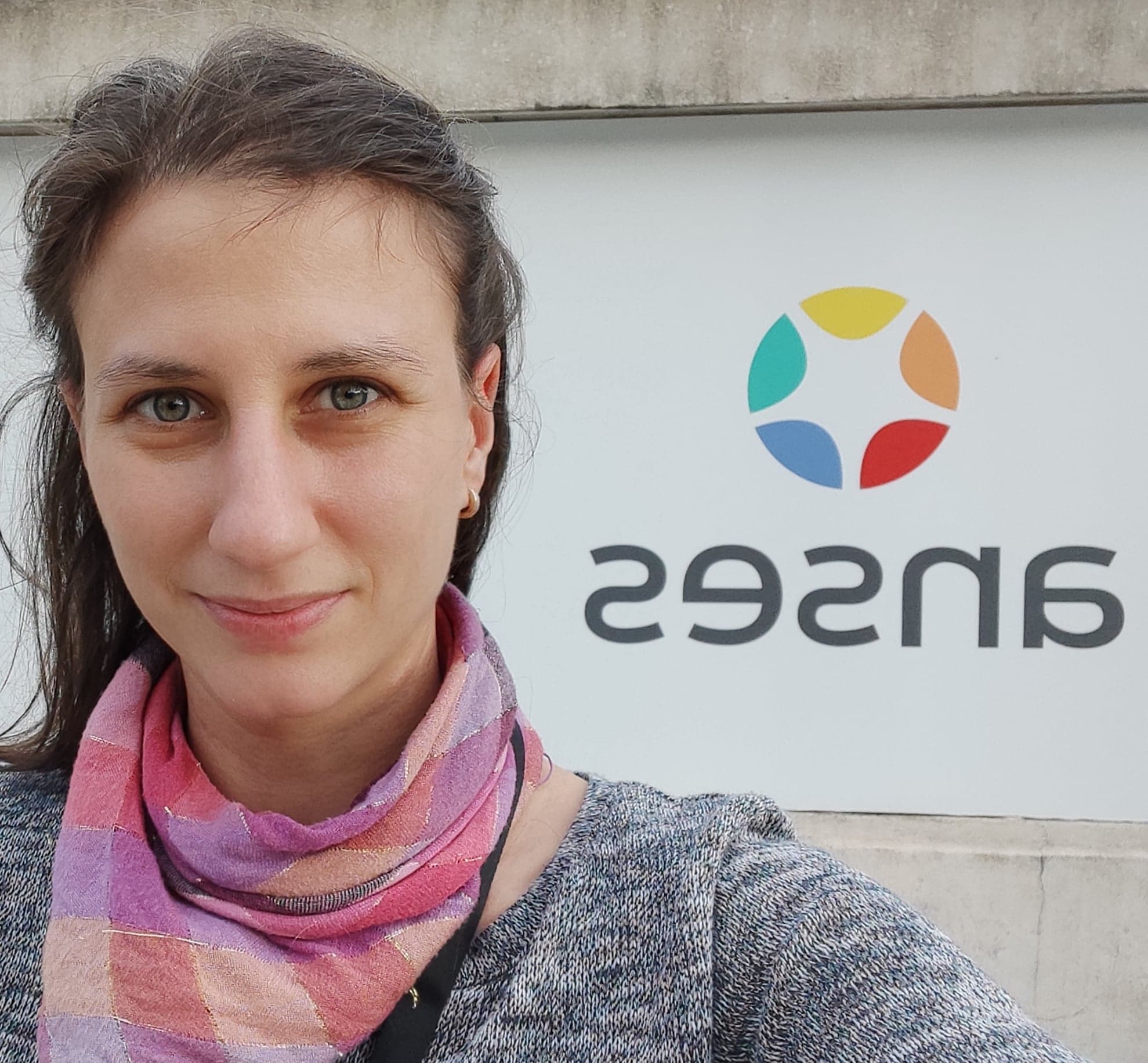
Julie Teresa Shapiro is a research scientist in the Epidemiology and Surveillance Support Unit of Anses, the French National Agency for Food, Environmental and Occupational Health & Safety in Lyon, France where her research focuses on syndromic surveillance of animal diseases and epidemiology. She received her PhD in Interdisciplinary Ecology in 2018 from the University of Florida, where she studied the effects of land-use change on bats and their microbes in southern Africa and modeled the role of bat diversity and anthropogenic disturbance on Ebola virus spillover. Prior to arriving at Anses, she completed her first postdoc at Inserm, the French National Institute of Health and Medical Research where she studied the ecology of antimicrobial resistance in hospital networks. Afterward, she was a Zuckerman Postdoctoral Fellow at Ben-Gurion University of the Negev in Israel studying plasmid genetic networks. She has been a member of the IUCN Bat Specialist Group since 2016. She has authored or co-authored 30 peer-reviewed articles on subjects ranging from bat ecology to ecosystem services.
Dr Francesca Martelli
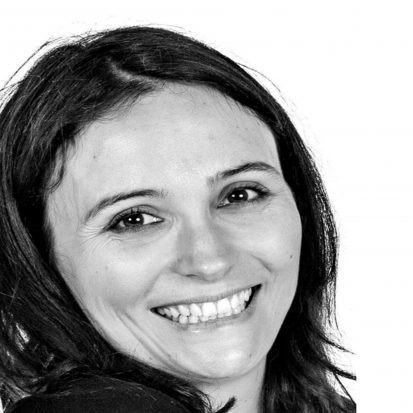
Francesca Martelli obtained her degree of Doctor of Veterinary Medicine from the Faculty of Veterinary Medicine at the University of Bologna (Italy) in 2004. To pursue her interest in the public health aspects of veterinary science she undertook a PhD in the epidemiology and control of hepatitis E virus in suids, graduating in 2008. She then worked as a post-doctoral scientist at the Animal and Plant Health Agency (APHA) Weybridge in the United Kingdom, where she represented the APHA in the European Union project VITAL (“Integrated monitoring and control of foodborne viruses in European food supply chains”). Since 2010 she has led a team of scientists in the field epidemiology unit of the Department of Bacteriology at APHA Weybridge. Francesca is responsible for research projects focussing on the control of Salmonella and antimicrobial resistant (AMR) bacteria in animals and food products. Her research focuses on applied methods for the control of Salmonella and AMR in livestock, in particular poultry and pigs, and she is author of several peer reviewed publications on the subject. Francesca also undertakes surveillance activities for the control of Salmonella and AMR bacteria in livestock, with particular focus on outbreak response in case of incursion of public health relevant pathogens in the United Kingdom. Francesca has extensive international experience, through collaboration with the European Food Safety Authority, European Reference laboratories, leading European universities, and presentations at international conferences.
Prof Muna Anjum
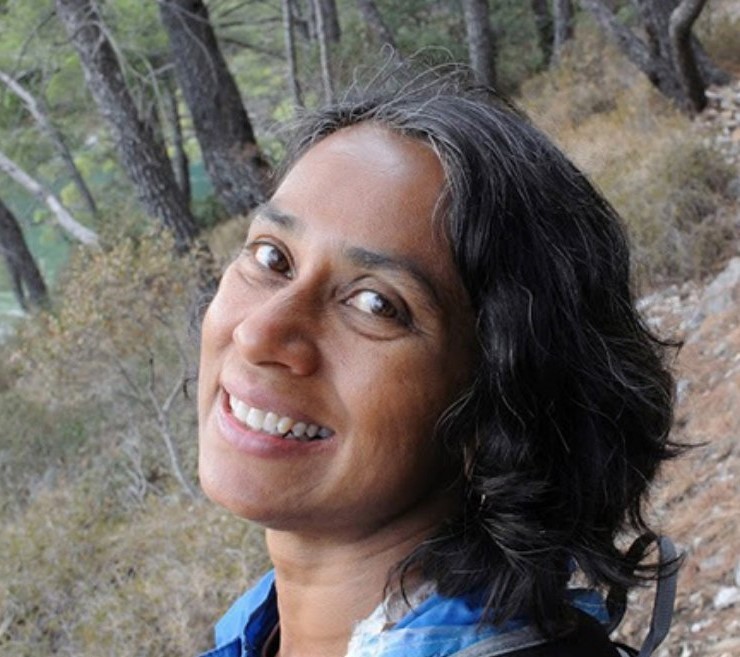
Muna Anjum has extensive expertise in characterization of antimicrobial resistance mechanisms (AMR) present in commensal and zoonotic bacteria such as Enterobacteriaceae and Methicillin Resistant Staphylococcus aureus (MRSA) isolated from food animals. She works within a multidisciplinary team of molecular biologists, veterinarians, and epidemiologists that conduct national surveillance, outbreak investigations as well as research activities to understand persistence and dissemination of AMR through both zoonotic pathogens and commensal bacteria in the food chain. Muna Anjum heads the Bacterial Characterisation workgroup of >30 staff and students, which helps deliver commissioned research and surveillance APHA performs on behalf of UK Government. She is also the AMR research lead and has spearheaded the establishment at APHA of genomics for characterisation of AMR in bacteria isolated from livestock.
She holds an Honorary Professorship at the University of Surrey and is a member of the Health Protection Research Unit (HPRU) on Healthcare Associated Infections and AMR & Genomics and Enabling Data at the University of Oxford, in partnership with UKHSA, which is funded by the UK National Institute of Health Research. She is also a member of the DEFRA Antimicrobial Resistance Coordination (DARC) Group, which reviews activities of the UK government on antimicrobials. Muna Anjum has led or is the APHA lead in numerous UKRI and EU projects, including the One-Health EJP Project: ARDIG, as well as a number of commercial projects.
Muna Anjum has published extensively in the area of AMR, and her publications can be found at Prof. Muna F. Anjum – Google Scholar.
Prof David Hayman
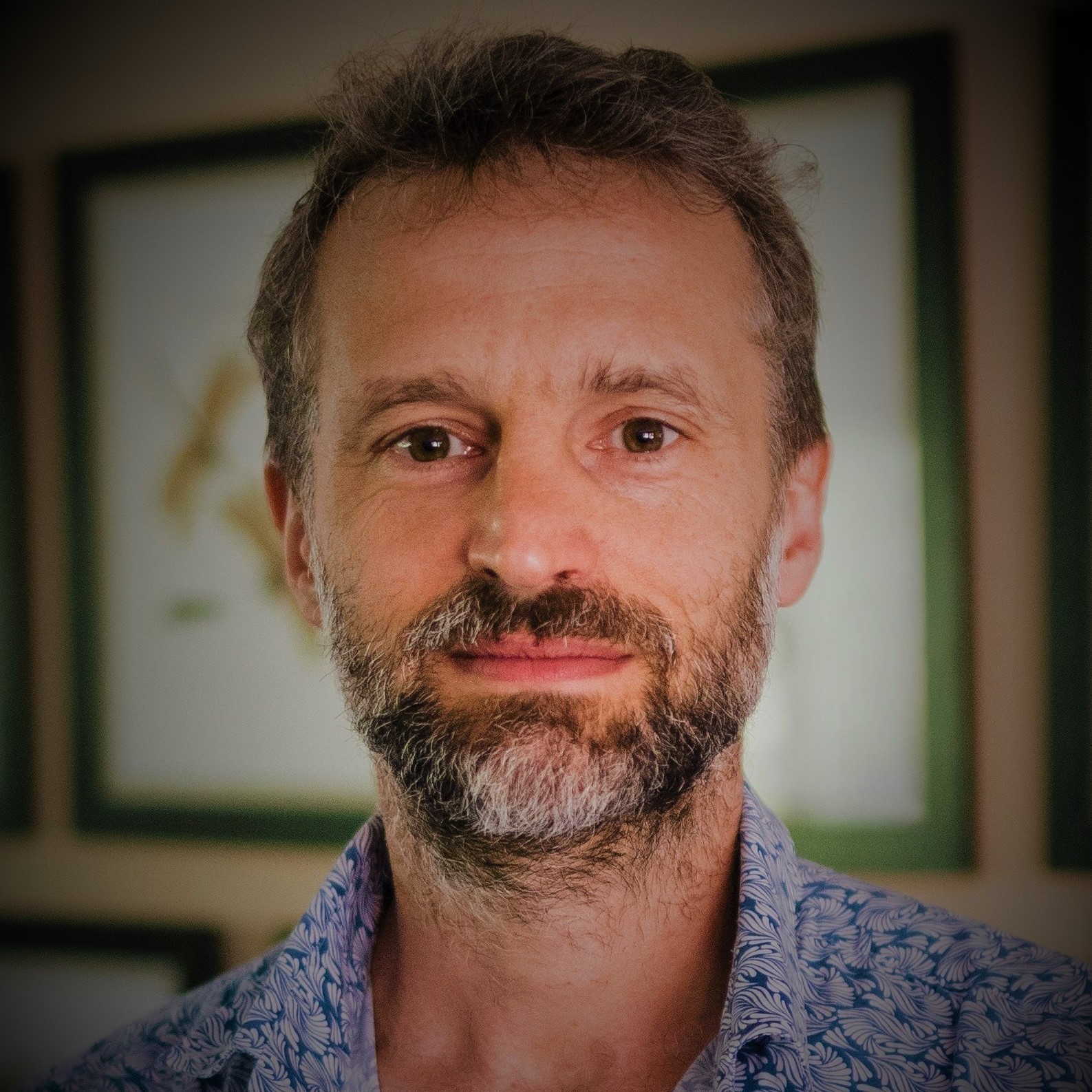
David Hayman is an epidemiologist and disease ecologist, working at the intersection of human, animal and environmental health. He is Professor of Infectious Disease Ecology, Royal Society Te Apārangi Rutherford Discovery Fellow and Percival Carmine Chair in Epidemiology and Public Health at Massey University, New Zealand. He co-directs a large research team in the School of Veterinary Sciences, called the Molecular Epidemiology and Public Health Laboratory (mEpiLab) and directs the Massey Infectious Disease Research Centre (IDReC).
Prof Hayman’s work has focused on emerging and endemic infectious diseases which primarily cause devastating human illness (e.g., Ebola virus disease, Covid-19, rabies), are highly contagious (e.g., measles and giardiasis) or cause serious ecological problems (e.g., white-nose syndrome in bats). He is on numerous committees, including the One Health High Level Expert Panel (OHHLEP), providing expertise to the Food and Agriculture Organization (FAO), the World Organisation for Animal Health (WOAH, formerly OIE), the United Nations Environment Programme (UNEP) and the World Health Organization (WHO) and co-authored the WHO-convened global study of origins of SARS-CoV-2: China Part report.
Dr Arnoud van Vliet
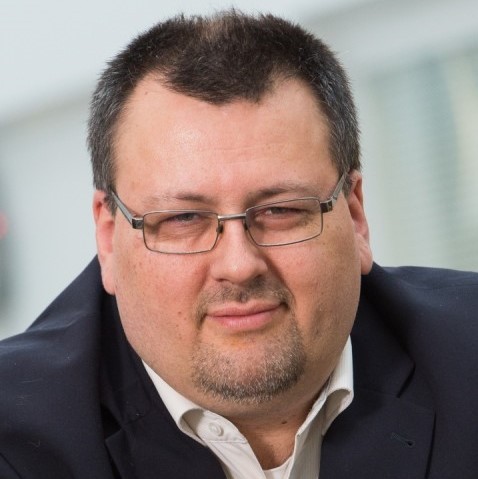
Arnoud van Vliet is a Senior Lecturer in Microbiology at the School of Veterinary Medicine, University of Surrey in the UK. His research focuses on (foodborne) zoonotic bacterial pathogens such as Campylobacter, Listeria, E. coli and Salmonella. While Arnoud trained as an experimental scientist, he moved into the area of genomics/bioinformatics with the aim of using genome sequencing and analysis technologies to better understand bacterial virulence mechanisms, immune escape, phage defence and antimicrobial resistance. One of his goals is to make bioinformatics/genomics more accessible and user-friendly to novice users.
Dr Pikka Jokelainen
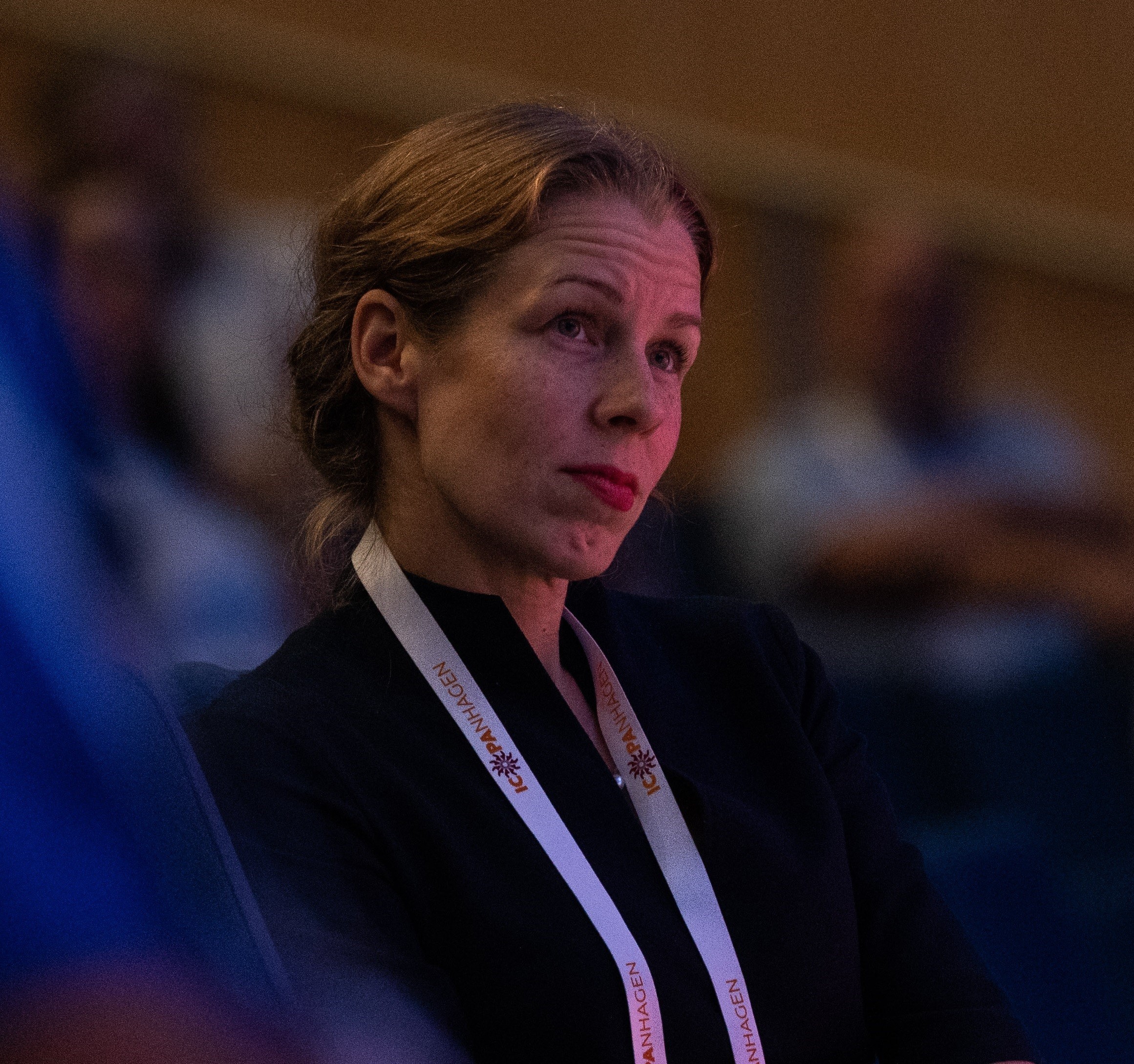
Pikka Jokelainen (DVM, PhD, Adj. Prof.) leads the Secretariat for Infectious Disease Preparedness at Statens Serum Institut, Copenhagen, Denmark. Her professional interests include One Health, endemic and emerging zoonoses, preparedness for infectious threats, international cross-sectoral collaborations, and science-policy interfaces. She has published over 100 scientific publications, and she is Editor of Parasite Epidemiology and Control, Associate Editor of Epidemiology and Infection, and Section Editor of PLOS Neglected Tropical Diseases. She is the Science Officer of ESCMID Study Group for Public Health Microbiology, the Chair of Finnish Epidemiology Society, the President of Scandinavian-Baltic Society for Parasitology, and the President of World Federation of Parasitologists.
Dr. Jokelainen is a Member of the Project Management Team of One Health European Joint Programme (One Health EJP): Deputy Leader of Work Packages on Coordination of Joint Research Projects and on Science to Policy Translation. Moreover, she is Co-Chair of One Health sustainability module, and the Leader of the international multidisciplinary TOXOSOURCES Joint Research Project consortium, that focuses on zoonotic parasite Toxoplasma gondii.
Dr Pieter-Jan Ceyssens

Pieter-Jan Ceyssens (19/02/1982) obtained his master in Bioscience Engineering and graduated cum laude in 2004. He completed his PhD in Bioscience Engineering at the department of Biosystems (University of Leuven) in 2009. This research was funded by an IWT scholarship and focused on phylogenetics of phages infecting Pseudomonas aeruginosa. Afterwards, and funded by PDM/FWO postdoctoral fellowship (2010-2013), he successfully applied multi-omics approaches for phage-host interaction studies. During his postdoc, he spent research time at the MFPL Laboratories at the University of Vienna (Prof. Udo Bläsi) on transcriptomics, and at the University of Pittsburg (Prof. Graham Hatfull) on phage recombineering.
Since 2014, he is affiliated with Sciensano and was appointed head the Unit ‘Antibiotics & Resistance’ in 2015. This unit is embedded within the division of Human Bacterial Diseases, which groups National Reference Centers (NRCs) of Salmonella, Shigella, Listeria, Yersinia, Neisseria and Mycobacterial spp. He leads a team of 2 postdoc-level scientist and three lab technicians and is currently co-promoter of 2 PhD candidates of which the OHEJP ‘Kentucky’ project. He is One Health focal point for Antimicrobial Resistance at Sciensano (2018-2023), and elected member of the board of directors of the Belgian Society of Microbiology (2021-2027) and the Belgian Society of Viruses of Microbes (2022-2028).
Dr Guido Benedetti
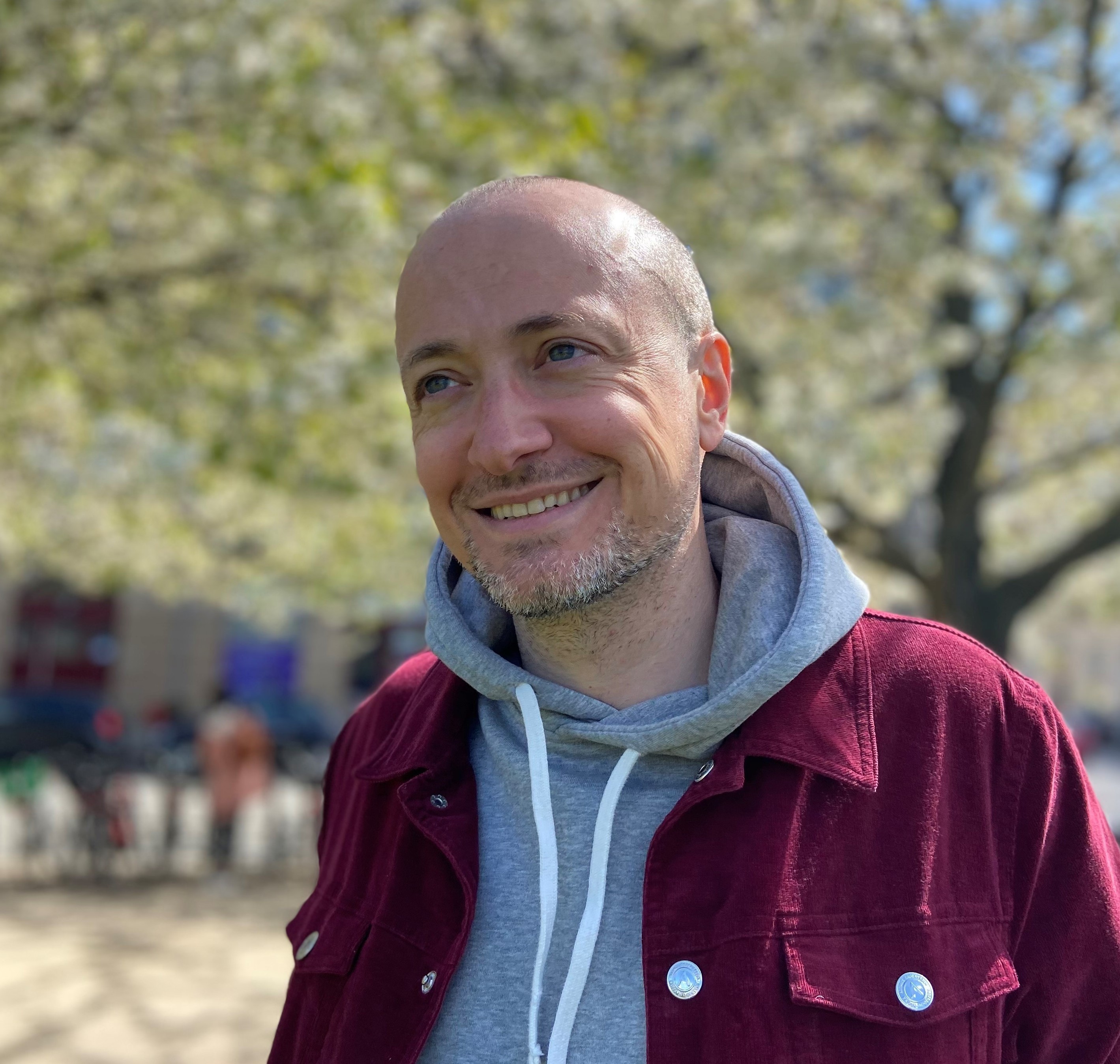
Guido Benedetti graduated as a dentist (2003), and then obtained a PhD in preventive dentistry (Italian course, Dottorato di Ricerca, 2011) and a Master of Public Health (2017). After a few experiences with humanitarian organizations and international agencies, he served as a field epidemiologist with Médecins Sans Frontières from 2014 to 2018. Then, he entered the ECDC European Programme for Intervention Epidemiology Training (EPIET) at Statens Serum Institut, Denmark, where he now works at the Department of Infectious Disease Epidemiology & Prevention. Guido is also a visual artist, working primarily in digital art. ORCID: 0000-0002-0788-8562
Dr Arran Folly
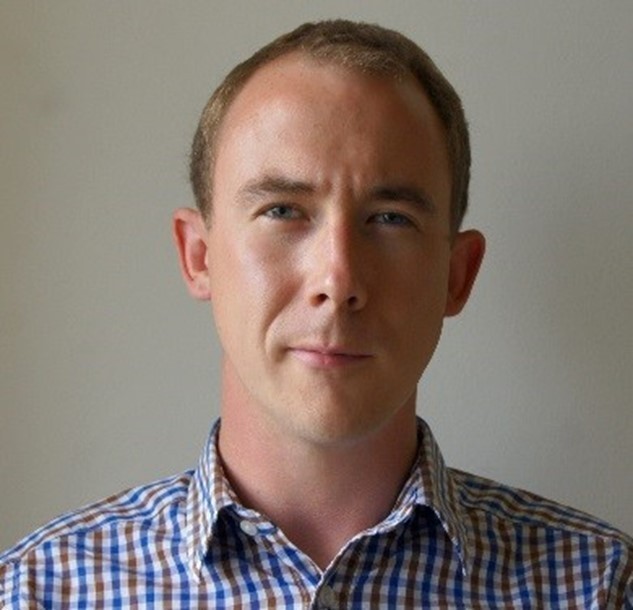
Arran Folly heads up the National Reference Laboratory for arthropod-borne and wildlife viruses at the Animal and Plant Health Agency, where his primary research focus is on emerging viral zoonoses and disease ecology. Arran has presented and published on a range of insect specific pathogens and insect transmitted zoonotic pathogens. His main focus is on understanding the interface between pathogens, their hosts, and the environment.
Dr Mariana Vale
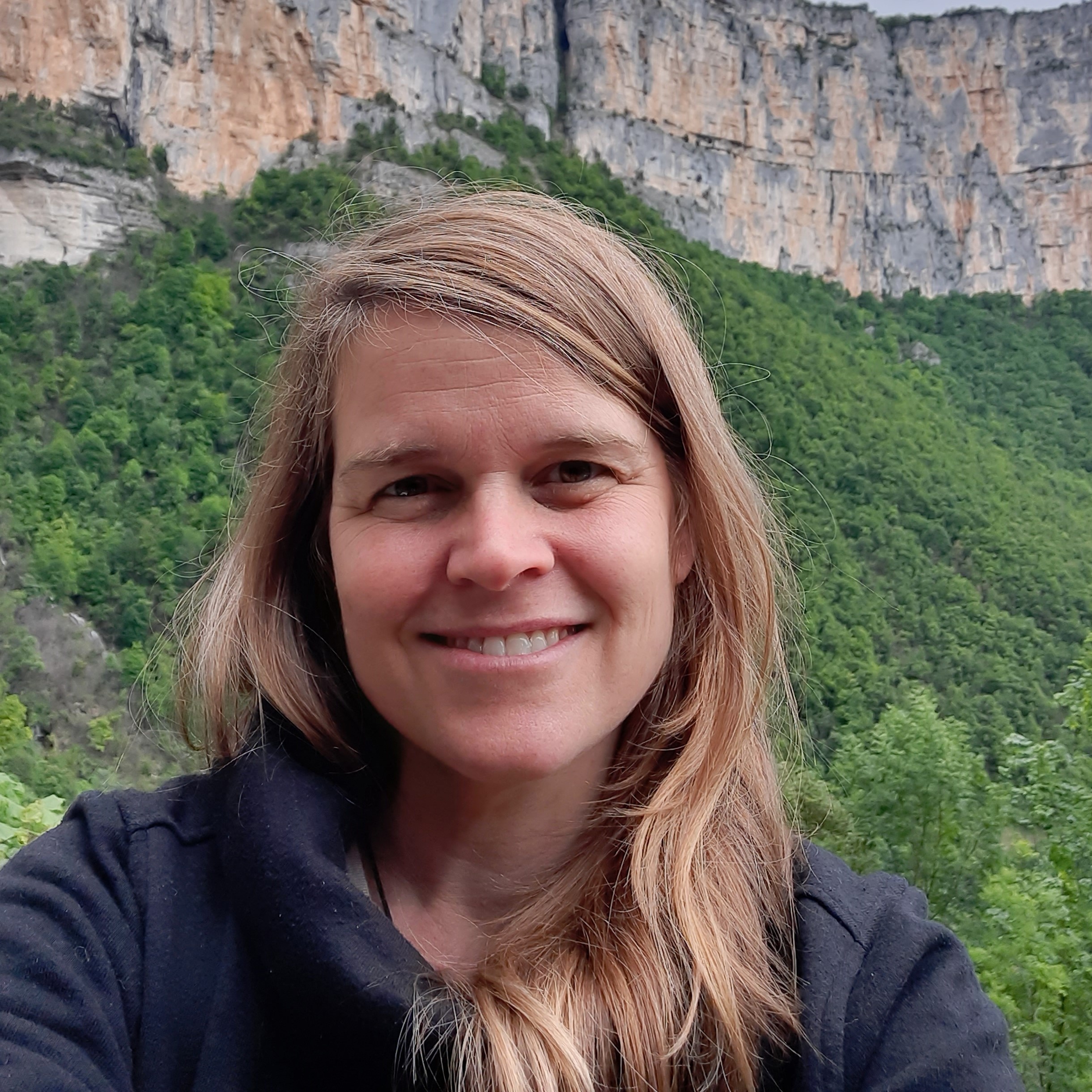
Mariana Vale is a Professor of Ecology at the Federal University of Rio de Janeiro (UFRJ), Brazil. She holds a M.Sc. in Conservation Biology from Columbia University and a Ph.D. in Ecology from Duke University, USA. She is a member of the Intergovernmental Panel on Climate Change (IPCC), the International Platform on Biodiversity and Ecosystem Services (IPBES), and the Coalition for Pandemic Prevention. Dr. Vale works on biodiversity and ecosystem services in the tropics, with a conservation biogeography approach, and a focus on the impacts of climate change and deforestation in South America’s rainforests and its fauna. With the onset of COVID-19, Dr. Vale started working and advocating for pandemic prevention through environmental protection.
Dr Nadia Boisen
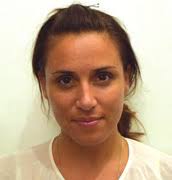
Nadia Boisen is a senior scientist at the International Centre for Reference and Research on Escherichia and Klebsiella, Statens Serum Institut, Denmark and visiting Associate Professor, University of Virginia School of Medicine, USA. She has over 15 years’ experience with pathogenic E. coli, international collaborations through research projects, and high-impact publications on the subject and is one of the leading experts on Enteroaggregative E. coli (EAEC) in particular Shiga toxin producing EAEC (STEC-EAEC). She is the project leader on 1. One Health European Joint Project Integrative Activity, OH-HARMONY-CAP: One Health Harmonisation of Protocols for the Detection of Foodborne Pathogens and AMR Determinants, and 2. the Gates funded project, Sepsis in neonatal children: Phenotypic characterization of Klebsiella spp. and E. coli.
Dr Christine Daoutis
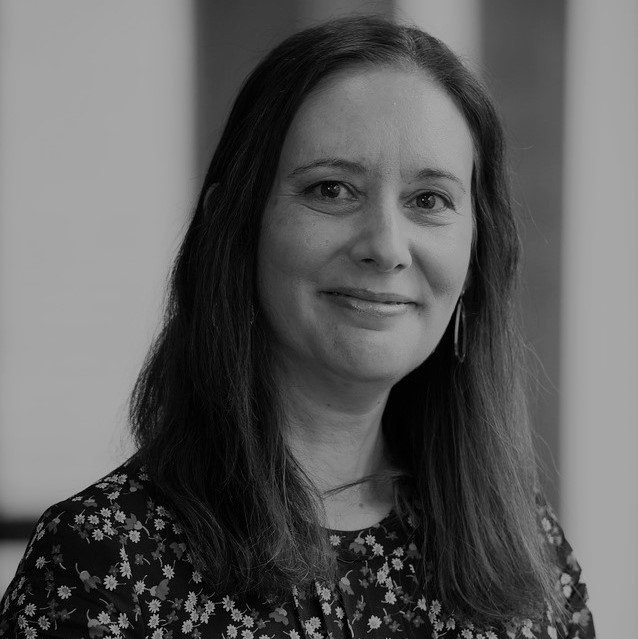
Christine Daoutis is Open Research manager (Scholarly Communications) at the University of Surrey. In her current role, she works with others towards shaping Open Research policy and practice, both within the University and externally. Her focus is on communications and training that support this goal. She has a special interest in making Open Research part of everyday practice for researchers, teaching staff and students.
She has nearly 20 years’ experience in Open Access, having set up Surrey’s first OA repository in 2005, and continues to co-lead the Open Access services to date. She has direct responsibility for the Open Access and copyright/licensing elements of Open Research, providing advice and training on these topics.
More recently, she also began a new part-time role as copyright officer at University College London, increasing awareness and knowledge on copyright across UCL.
She has a first degree in Biology from the University of Athens and a PhD in Psychology from the University of Surrey and worked as a Research Fellow in Psychology for 3 years before moving to the world of Open Access.
Dr Liam Burke
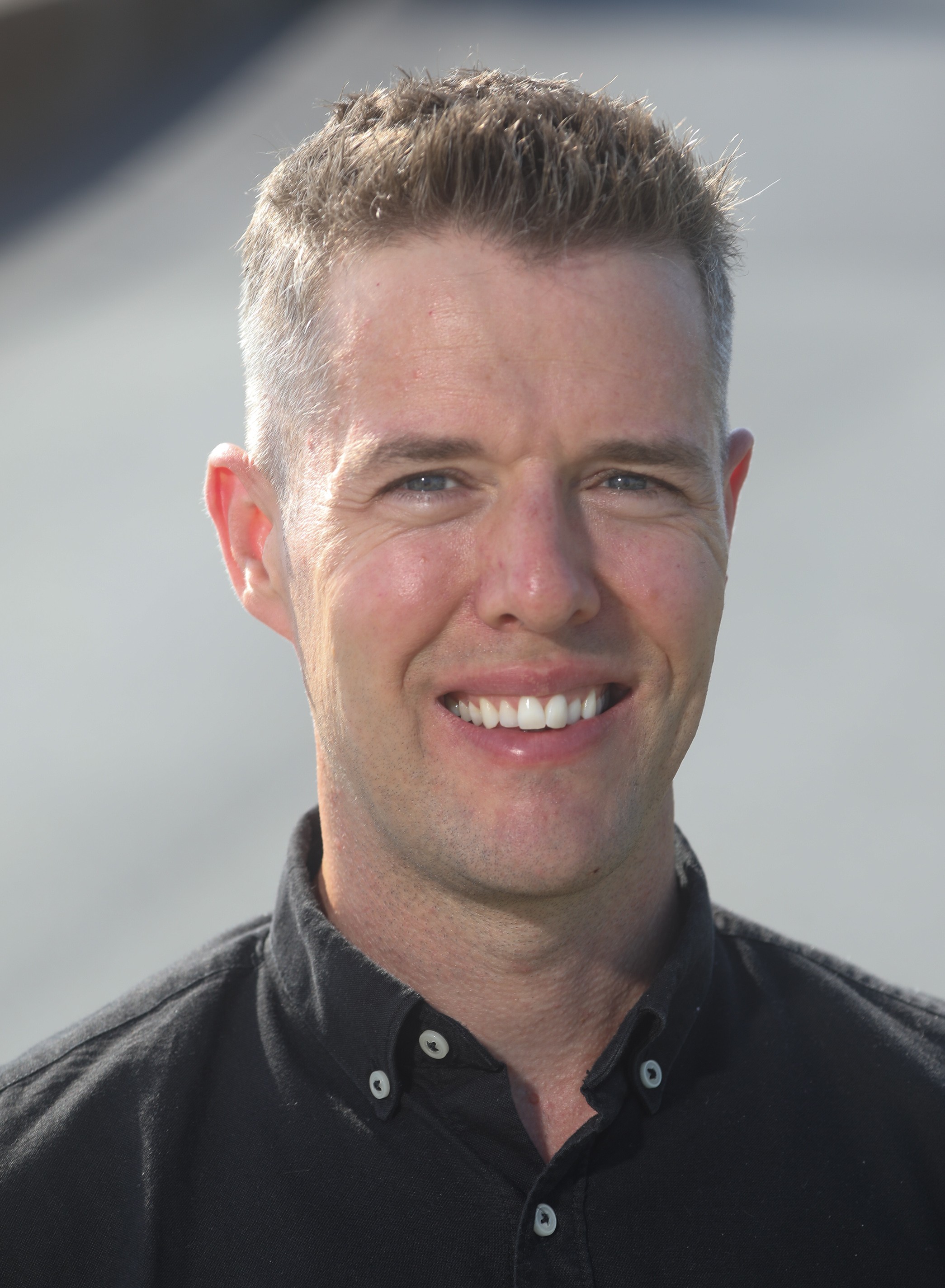
Liam Burke BSc, PhD, is Assistant Professor in Bacteriology at the School of Medicine, University of Galway. He received his PhD in 2013 from the Clinical Microbiology Department at Royal College of Surgeons in Ireland, under the supervision of Prof Hilary Humphreys and Dr Deirdre Fitzgerald-Hughes. He is a Principal Investigator in the Antimicrobial Resistance and Microbial Ecology (ARME) Research Group and the Centre for One Health, with primary research interests in antimicrobial resistant (AMR) Enterobacterales and Shiga-toxin producing E. coli (STEC).
Liam’s research focuses on studying the transmission of AMR strains/genes and STEC from a One Health perspective. His goal is to detect, characterise and understand their transmission in order to inform public health and policy-based interventions. His team consists of 6 researchers working across 4 different projects including PIER “Pubic Health Impact of Exposure to antibiotic Resistance in recreational water” and DERIVE “Detection and RIsk management of Verotoxigenic E. coli (VTEC) in the water environment”. He is a Collaborator on the OHEJP WORLDCOM project, which focuses on rapid tools for the on-site detection of AMR.
During this One Heath EJP Short Term Mission in the laboratory of Prof Bruno González-Zorn at Universidad Complutense Madrid, Liam developed skills in third generation sequencing and bioinformatics for hybrid sequence analysis. On returning to Galway, he set up hybrid sequence analysis for characterisation of bacterial genomes and mobile genetic elements in the ARME Group, which also supports plasmid characterisation for the National Carbapenemase Reference Laboratory.
Dr Ludovico Sepe
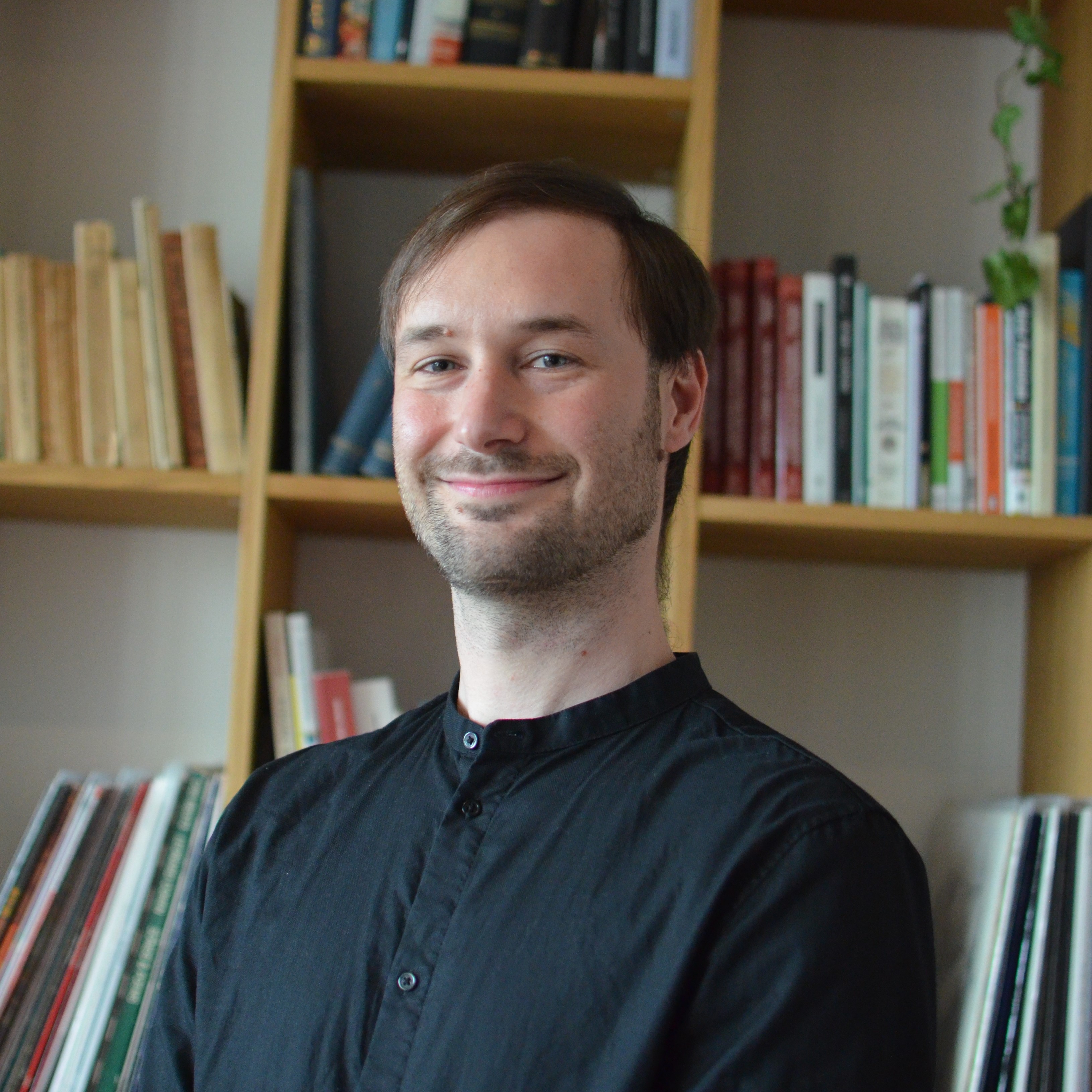
Ludovico Sepe holds a PhD in Infection Biology from the Max Planck Institute for Infection Biology (DE). He took part in research projects in Denmark, Germany, India and Israel. Currently, he is involved in the work package Science to Policy Translation of the One Health European Joint Programme at the German Federal Institute for Risk Assessment (BfR). He ensures the best use of the outcomes of the consortium by establishing appropriate dissemination activities targeted towards European and international organisations, and by taking part in relevant networking activities such as consultations with stakeholders. He runs a blog dedicated to One Health (https://ludosonehealth.blogspot.com/).
Dr Johanna von Gerichten
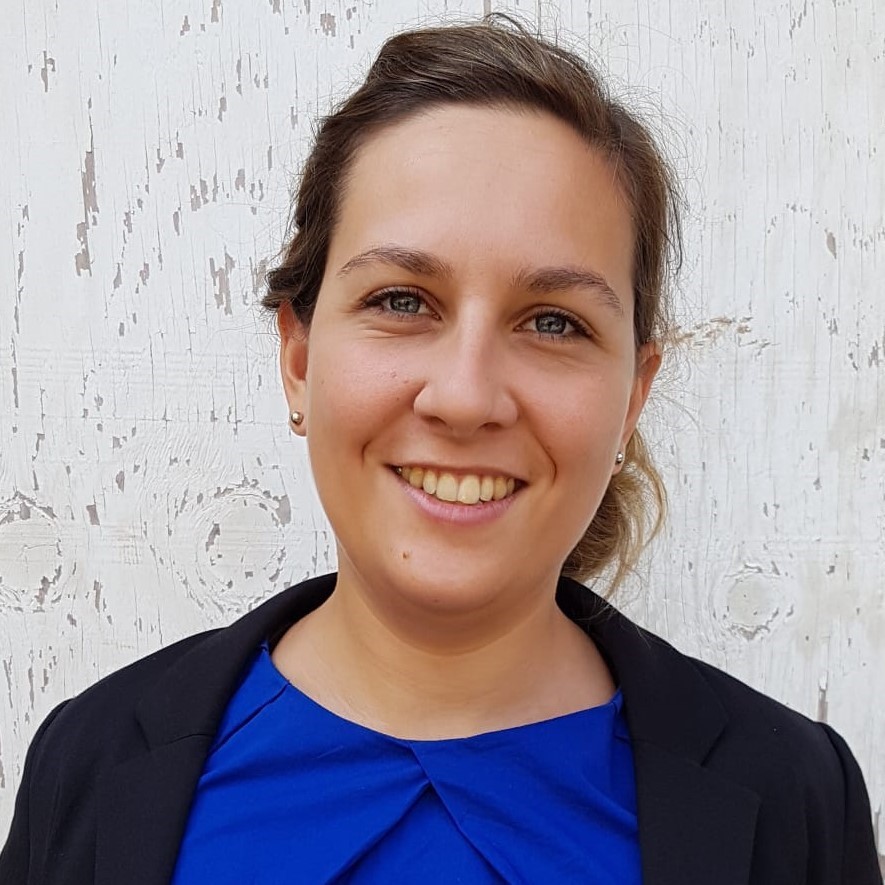
Johanna von Gerichten received her PhD from the University of Heidelberg (Germany) in November 2018 for her work in liquid-chromatography coupled mass spectrometry (LC-MS/MS) method development for Sphingolipids and structural identification of a novel bioactive lipid at the German Cancer Research Centre. She brought her expertise in MS analysis of lipids as a postdoctoral researcher to the University of Surrey (UoS) in April 2019 and successfully studied lipid metabolism in human primary CD3+ T cells using stable isotope labelled fatty acids (Group of Barbara Fielding). Part of this work was to establish a LC-MS/MS method for bulk cell analysis of oxidised fatty acids (oxylipins) from primary T lymphocytes. Currently, she holds a research position for biological mass spectrometry and multimodal imaging in Prof Melanie Baileys group at University of Surrey. And beside her day-to-day work she is the associate research champion for nutrition and food security as well as a commercialisation fellow at the University of Surrey.
Elaine Campling
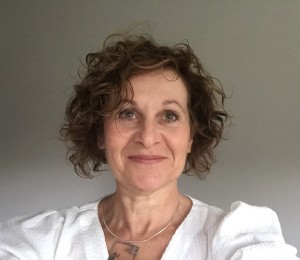
Elaine Campling is a professional graphic designer and has extensive experience with brand and marketing communications. Elaine joined the OHEJP Communication Team in January 2020 to complement the existing skillset within the Team with her creative specialism. As the consortium has become established and expanded, it has been essential to capitalise on this expertise by growing the audience with a strong visual brand presence: this is Elaine’s primary focus within the OHEJP consortium.
Ingrid Cárdenas Rey
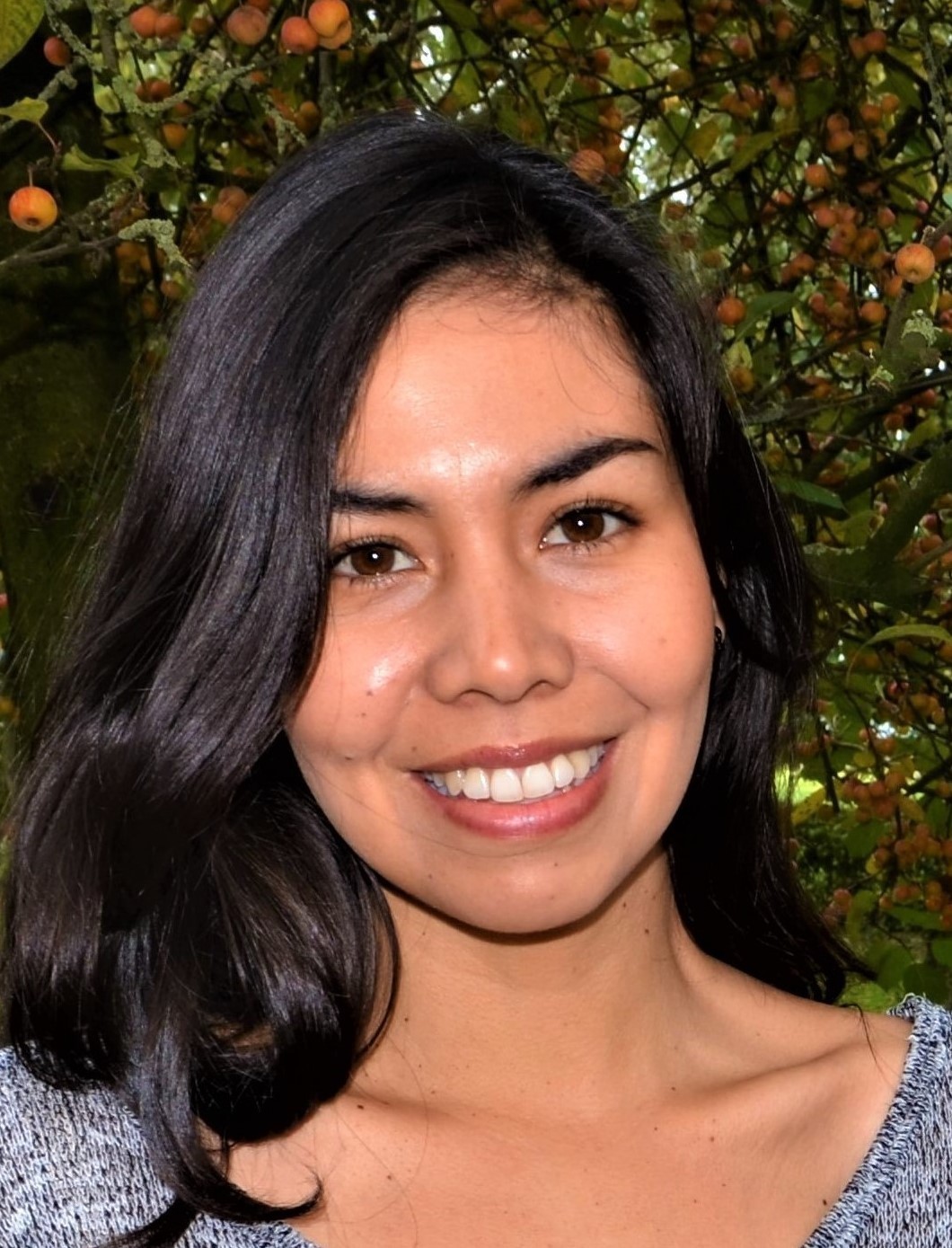
Ingrid Cárdenas Rey is an early career researcher from Wageningen University & Research working in antimicrobial resistance (AMR) and animal microbiome. Ingrid grew up in Colombia, and since her early life she has been genuinely interested in animal health & welfare and the world of microbes, which drove her to pursue studies in Veterinary Medicine in Colombia. Ingrid moved abroad to expand her skills and put her knowledge in service to others in countries like the USA and Australia. While working abroad, Ingrid realised the burden of AMR in animal production and society. It was then that Ingrid decided to return to academia and start her path on AMR research to understand better the process associated with this multifaceted global phenomenon. Ingrid culminated her master’s degree in Animal Sciences with a speciality in Quantitative Veterinary Epidemiology and AMR in the Netherlands. Her master’s degree paved the way to continue diving into AMR research via a PhD program founded by the OH-EJP and the Dutch Ministry of Agriculture, Nature and Food Quality. In her PhD, Ingrid studies the chicken gut microbiota in relation to colonisation with AMR bacteria. Currently, she is developing an in vitro chicken gut system that allows studying microbial communities and addressing several AMR research questions without animal testing and in a more sustainable way. Out of research, Ingrid enjoys the little things in life; a smile, a sunset, cuddling a cat and spending quality time with her loved ones.
Laura Gonzalez Villeta
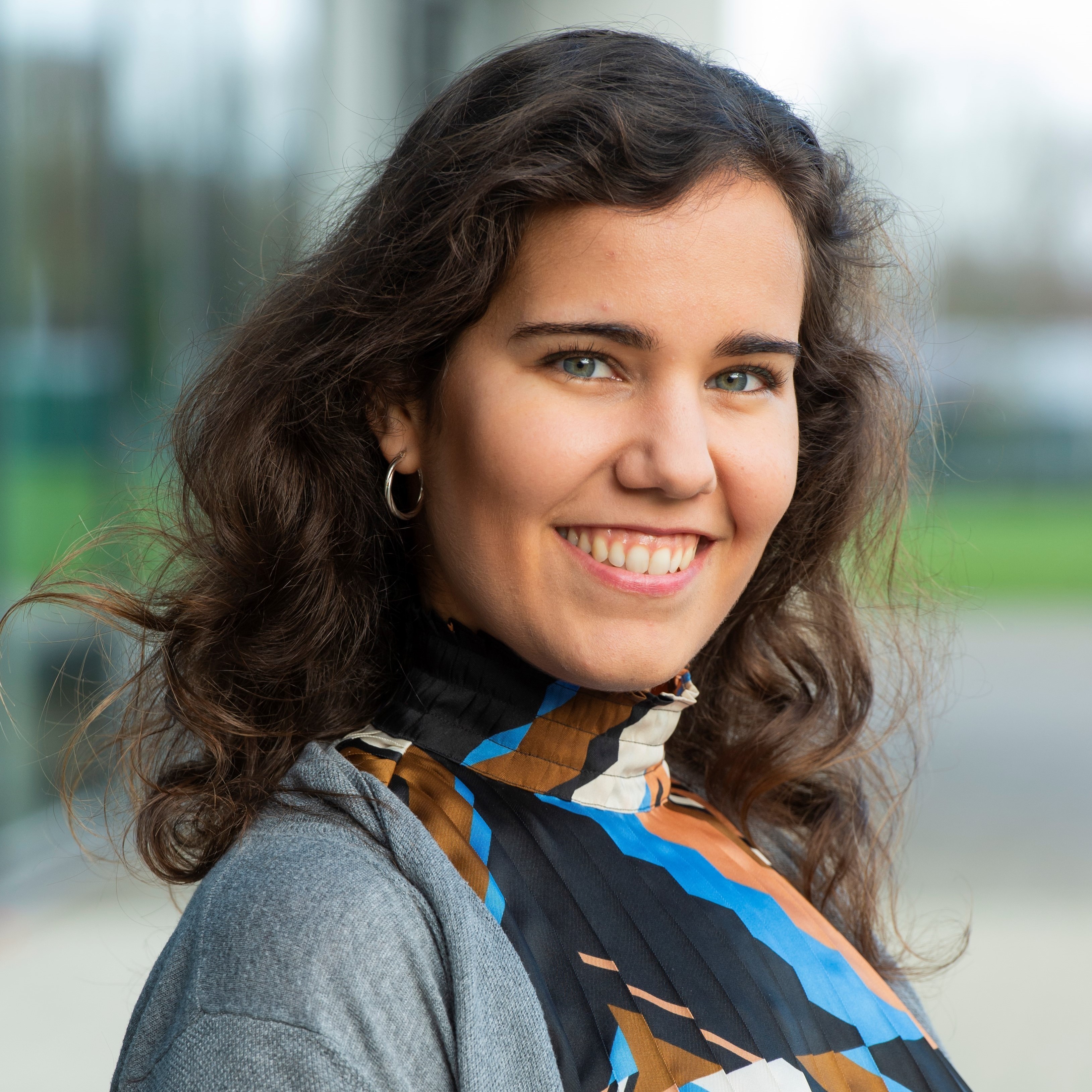
Laura grew up in Madrid, Spain. She completed her veterinary medicine degree at the Complutense University of Madrid. During her studies, she was able to do stints in France and in the US, where Laura gained an appreciation through internships for travel and different approaches to medicine. Upon graduation in 2017, taking advantage of a scholarship offered from the University of Madrid, Laura spent 6 months in Africa, based in Tamale, Ghana. She honed her skills as a teacher in immunology and veterinary nursing, making a lasting impact in her short time there.
Next for Laura was an internship at the European Food Safety Authority in Parma, Italy. Here she began to see the managerial side of science. Food Safety really appealed to Laura and with support from her mentor, Sofie, the idea of pursuing a PhD developed. Now she is at the University of Surrey, in England, pursuing that dream.
Laura is currently a One Health EJP PhD student in infectious diseases and environmental modelling. She is building a model to assess the effect of the environment on the incidence of infectious diseases, with a particular focus on Salmonella.
Her journey to the present includes a constant stream of international collaborations and experiences, which was essential for her personal development. She would like to work for an international organization in the area of Public Health. The One Health Initiative really interests her, as it focuses on communication and collaboration with practical and effective initiatives to solve diseases worldwide.
Dr Antonio Rodriguez
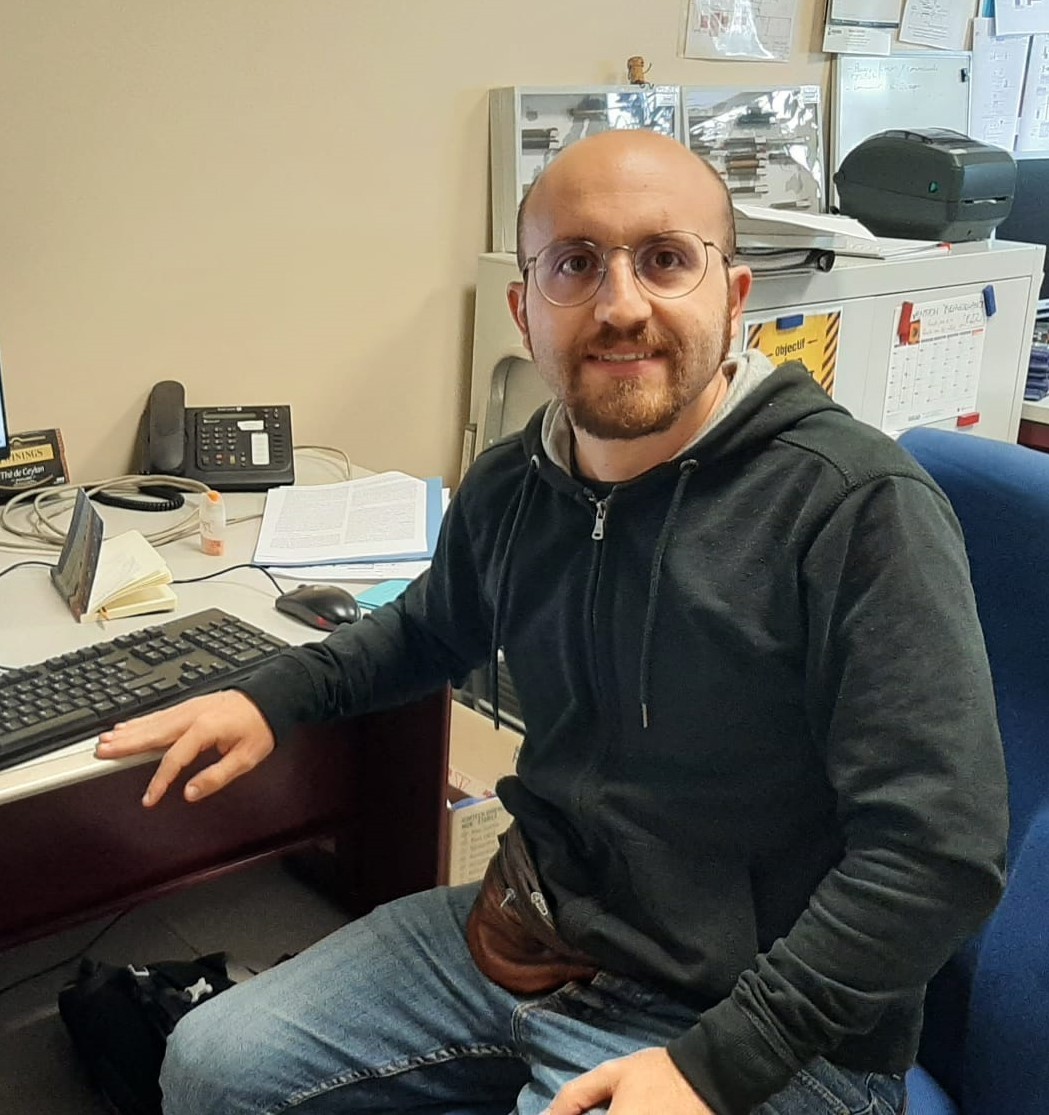
Antonio Rodriguez studied biological sciences and completed a master in conservation biology at Complutense University of Madrid in 2013. He was awarded his PhD in 2022 from the University of Lleida. He contributed to the One Health EJP by working on the NOVA and MATRIX projects (2020-2022) in the Spanish National Institute for Agricultural and Food Research and Technology (INIA). He recently moved to Clermont-Ferrand (France) to work in the National Research Institute for Agriculture, Food and the Environment (INRAE) in the frame of the Agroecoseq-C project (EJP Soil).
His research has addressed multiple aspects of global change, that is, climate change and other changes occurring globally, like land use changes or the presence of antimicrobial resistance in the environment. During his career, he completed several internships to acquire knowledge and learn new techniques. The last one was the EJP One Health Short-Term Mission (STM) that he did in June 2022. He travelled to the Netherlands, to the National Institute for Public Health and the Environment (RVIM) to study the factors associated with positive cases of a number of infectious diseases (Salmonellosis, Brucellosis, Tuberculosis…) in wild boars. With this purpose, the researchers Arno Swart and Elisa Beninca trained him in random forest analyses. He felt that the experience was highly beneficial, from good results to preparation of a publication and enhancement of the quality of his future research.
Dr Karin Troell
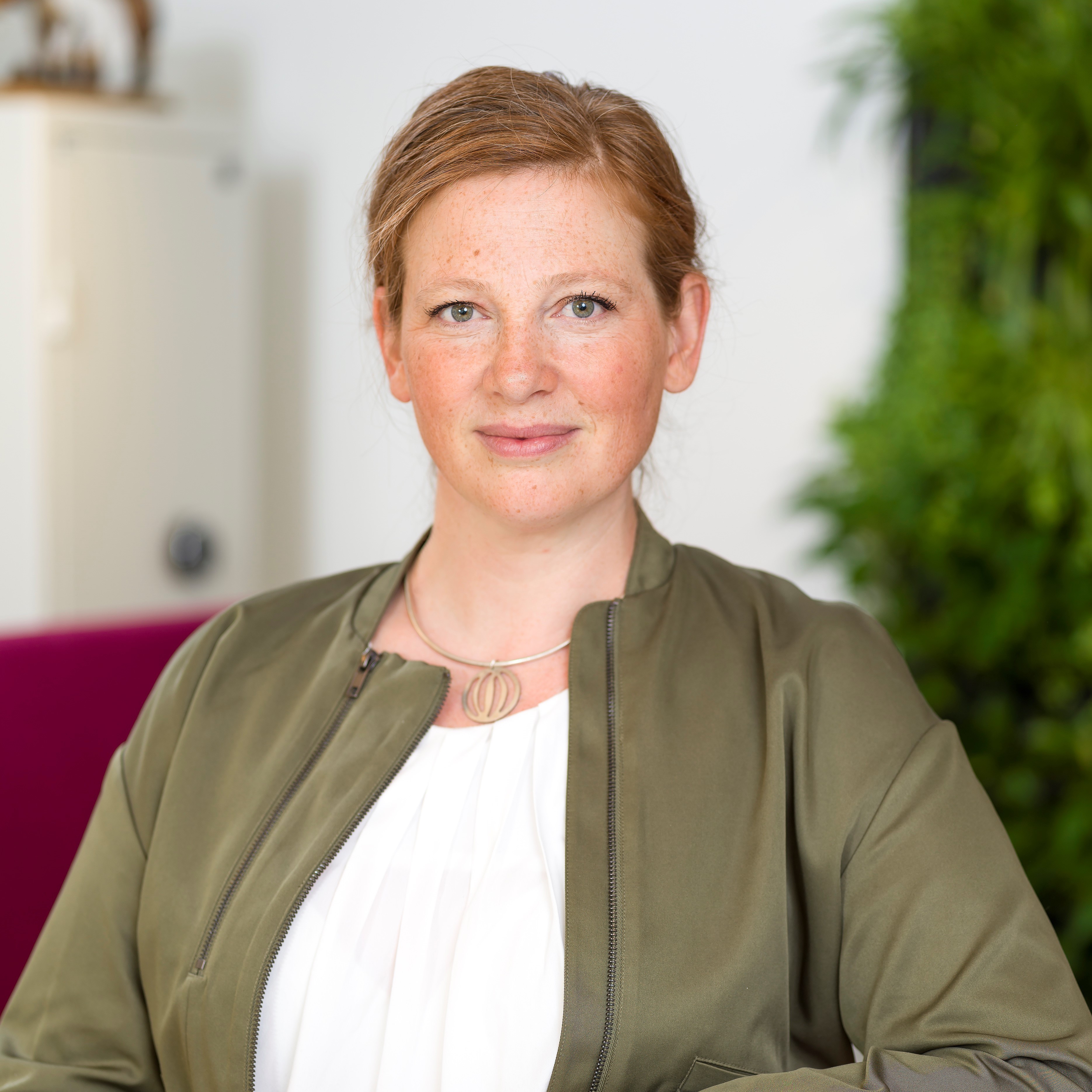
Associate Professor Karin Troell is a microbiologist and have worked with parasites since 2001 and with zoonotic protozoa since 2006. My research focus is on zoonotic transfer, virulence and cell biology in food- and water-borne protozoa, mainly Cryptosporidium and Giardia. For the last few years her focus has been on genomics and transcriptomics, and in particular on development of new tools to study Cryptosporidium, both for detection, high resolution typing and single cell genomics. Dr. Troell is working at the National Veterinary Institute and as lecturer at Uppsala university. Besides research, she has an expert role at the agency which includes outbreak investigations, source tracing and Cryptosporidium surveillance projects in domestic and wild animals. The last three years Dr. Troell has been involved in two OHEJP projects, including PARADISE where she is co-coordinating the project.
Dr Geoffrey Knott
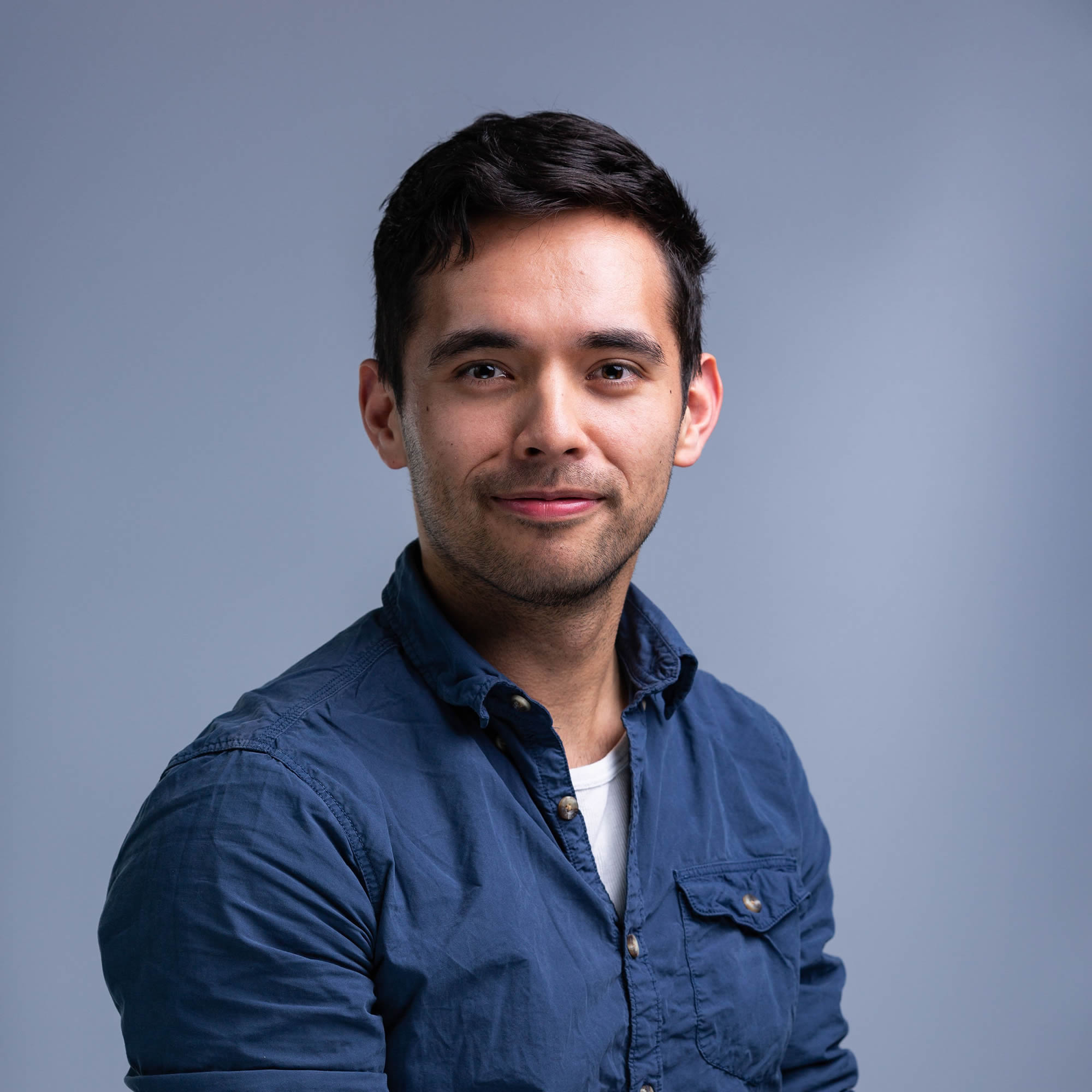
Geoffrey was a PhD student and PostDoc who now works in Innovation Strategy managing Surrey’s MRC Impact Acceleration Account (IAA) and IAA Commercialisation Fellowship programme (case studies here), with an increasing focus on PhD Student innovation, IP, and start-ups (see our PGR IAA Officers programme). Geoff works on his own start-up, HOP® which uses edible insect novel foods as a sustainable alternative protein source.
His talk will focus on the Commercialisation Fellowship programme which is a unique and flexible opportunity for early career academics to explore outside the lecturer theatre and/or lab and take part in a programme of impact, knowledge exchange and commercialisation activities.
